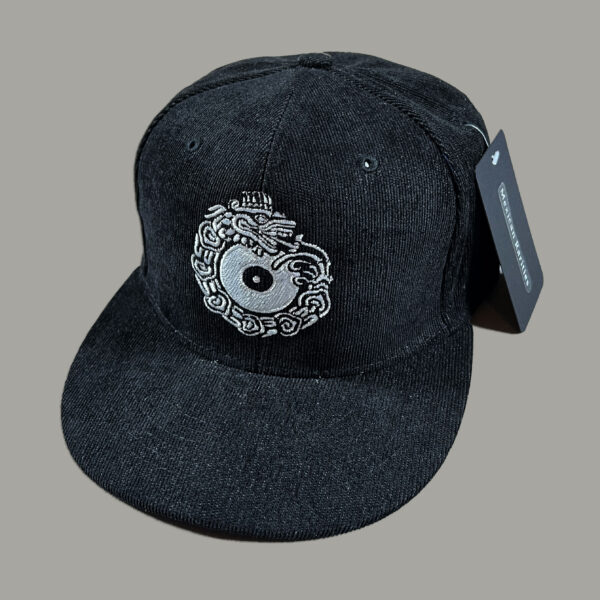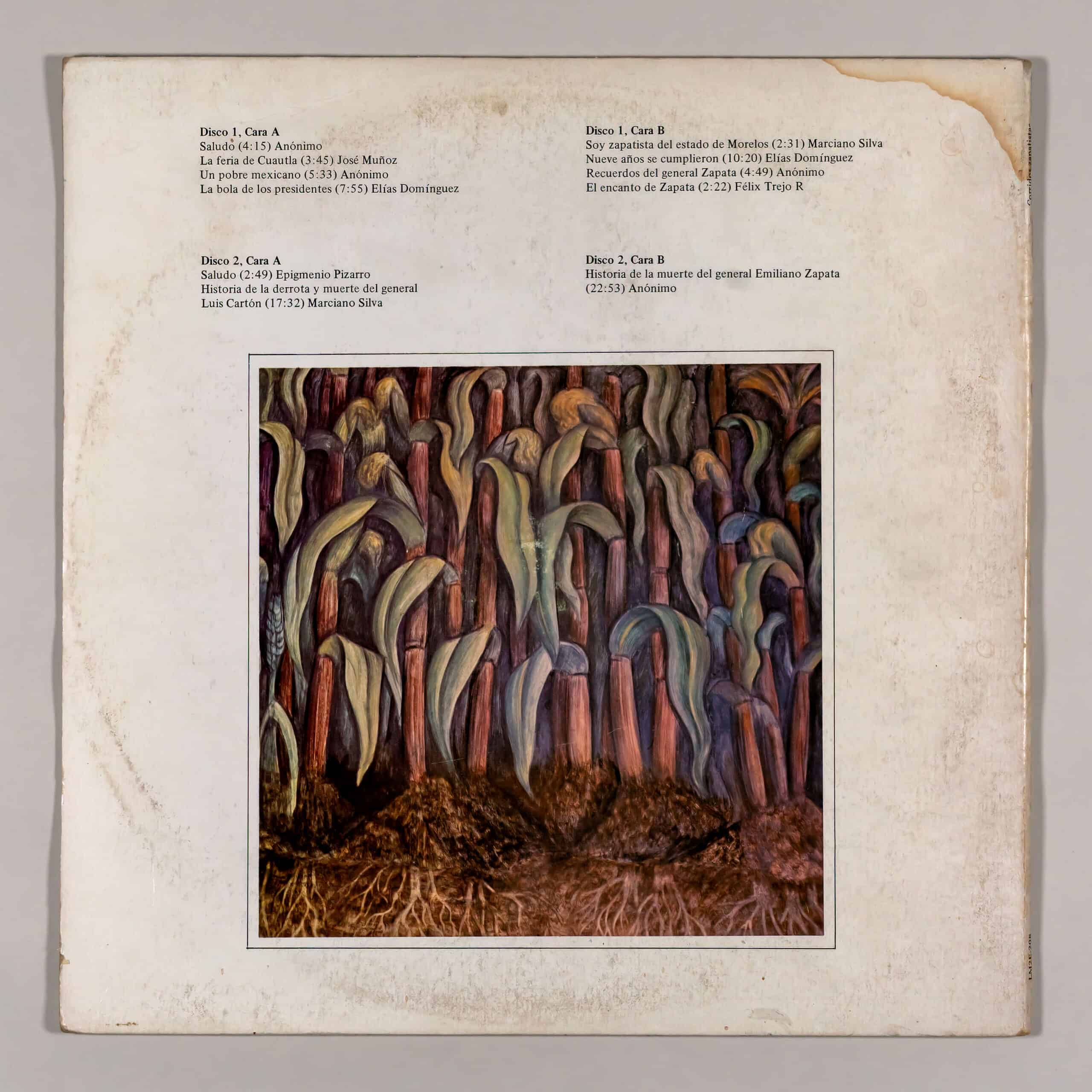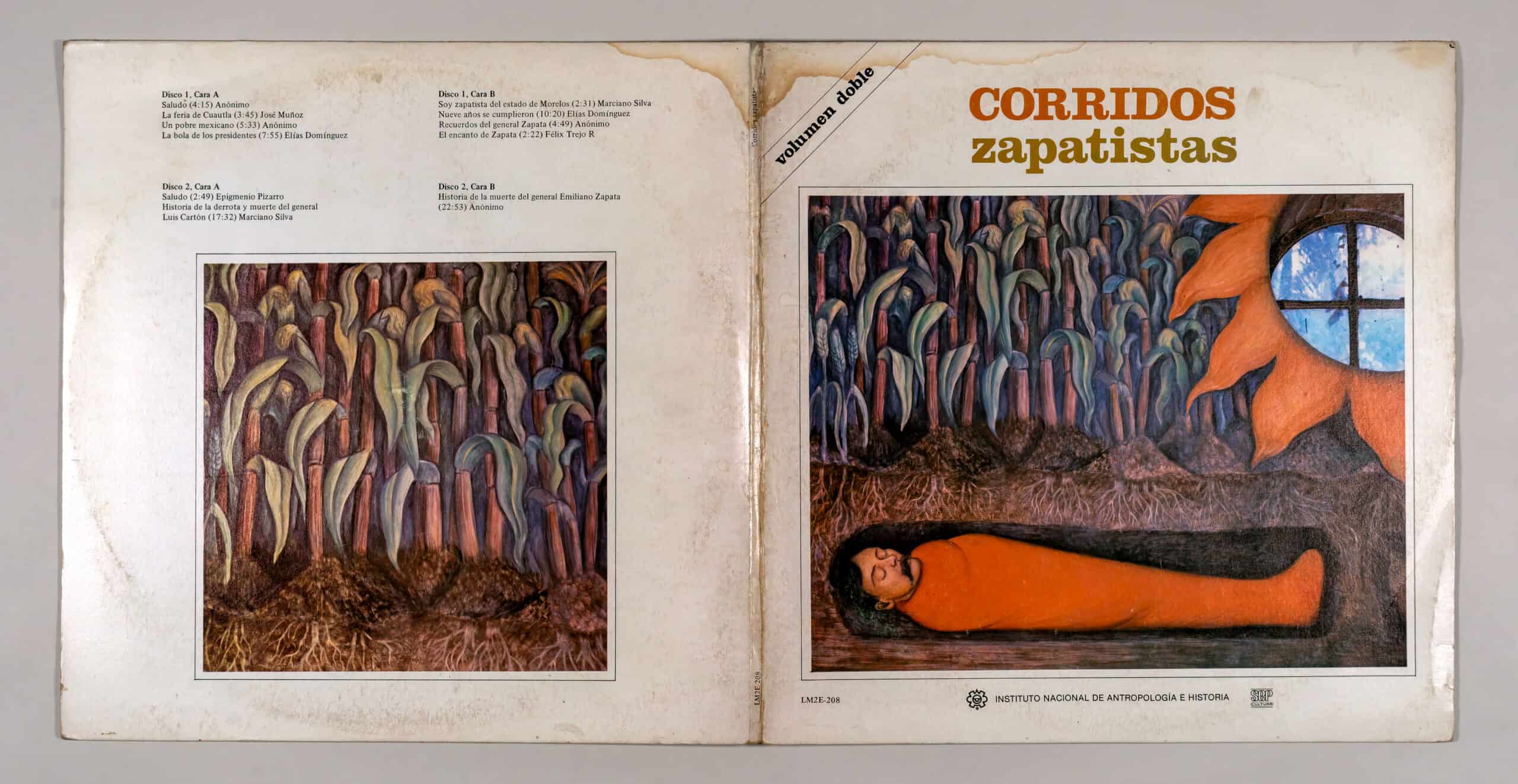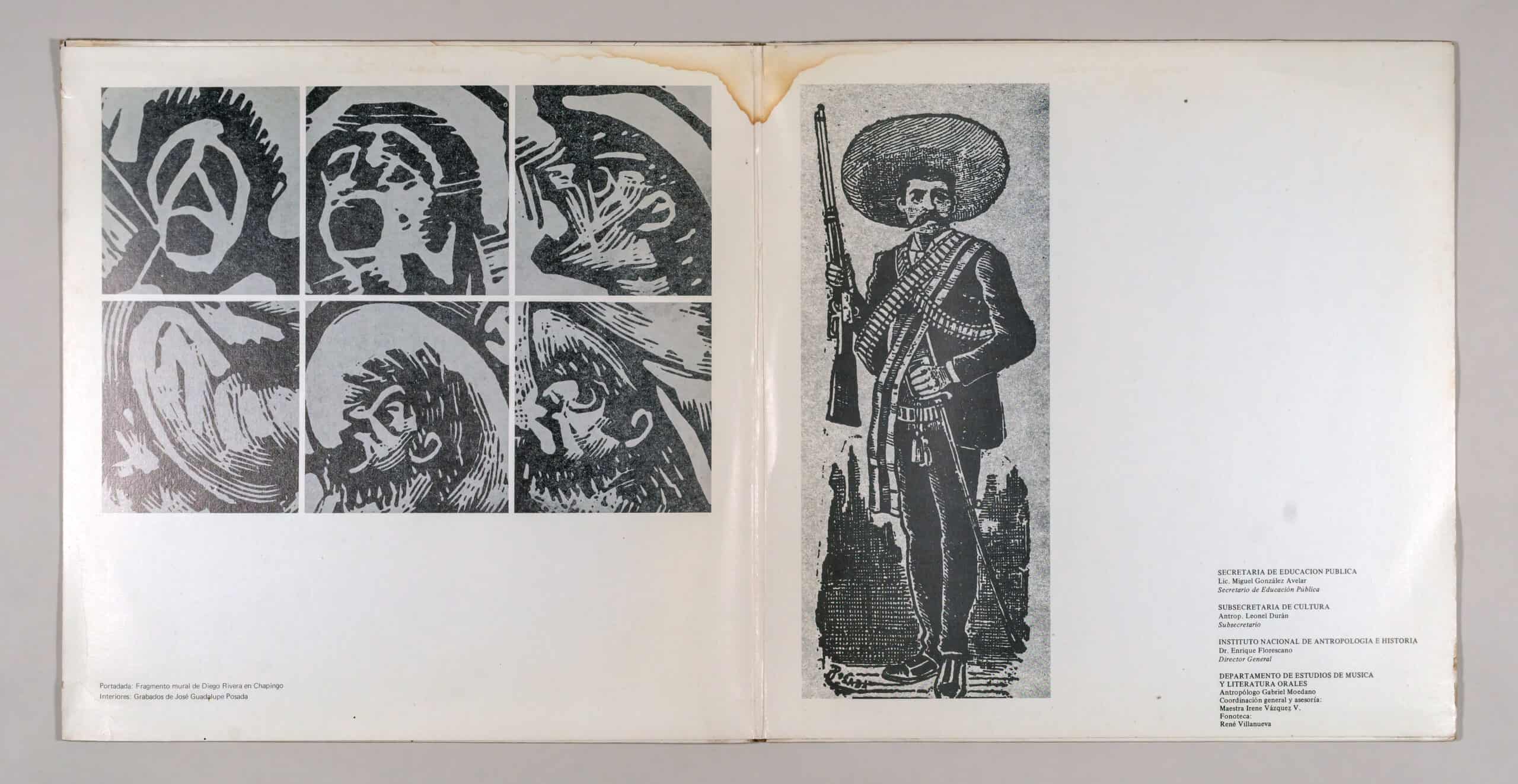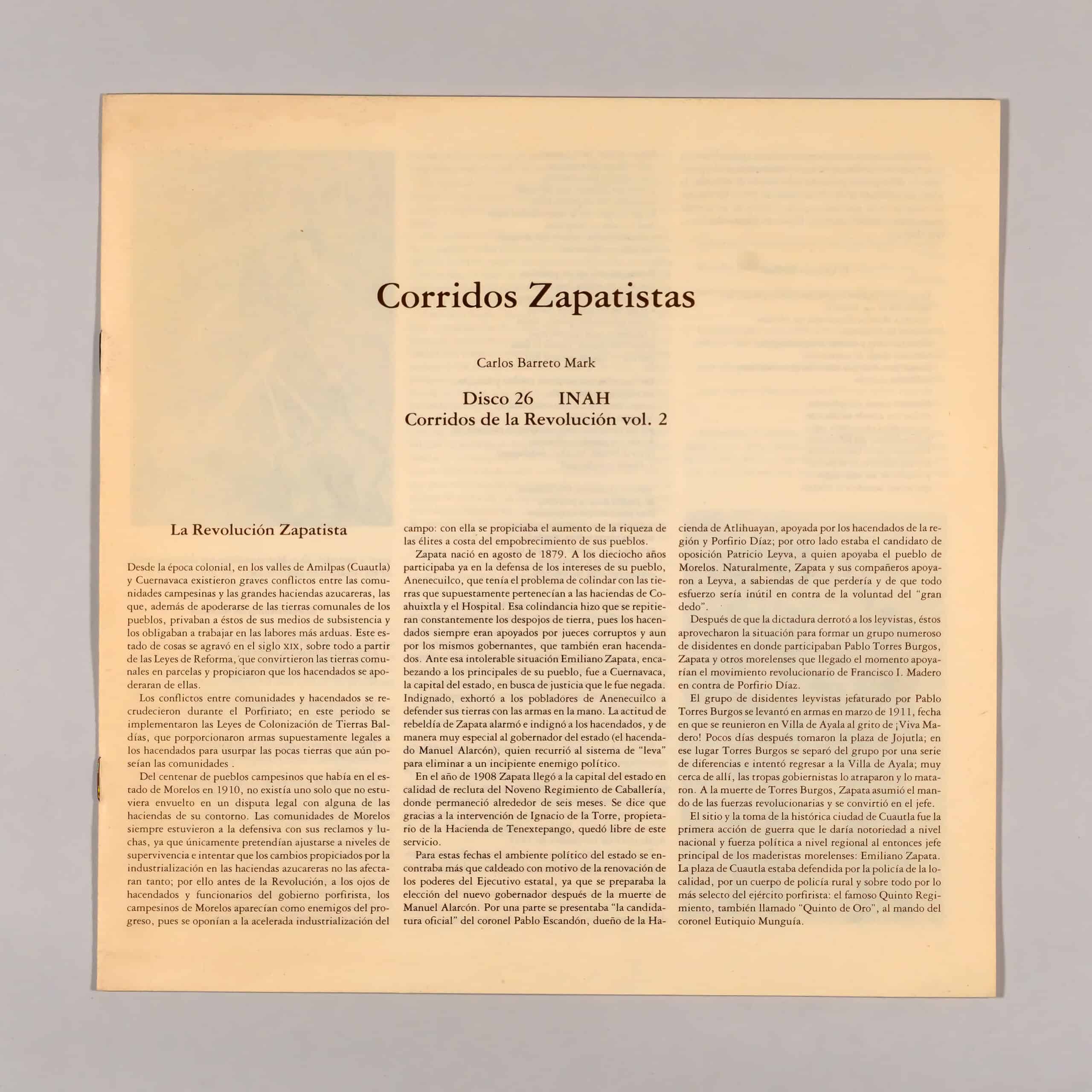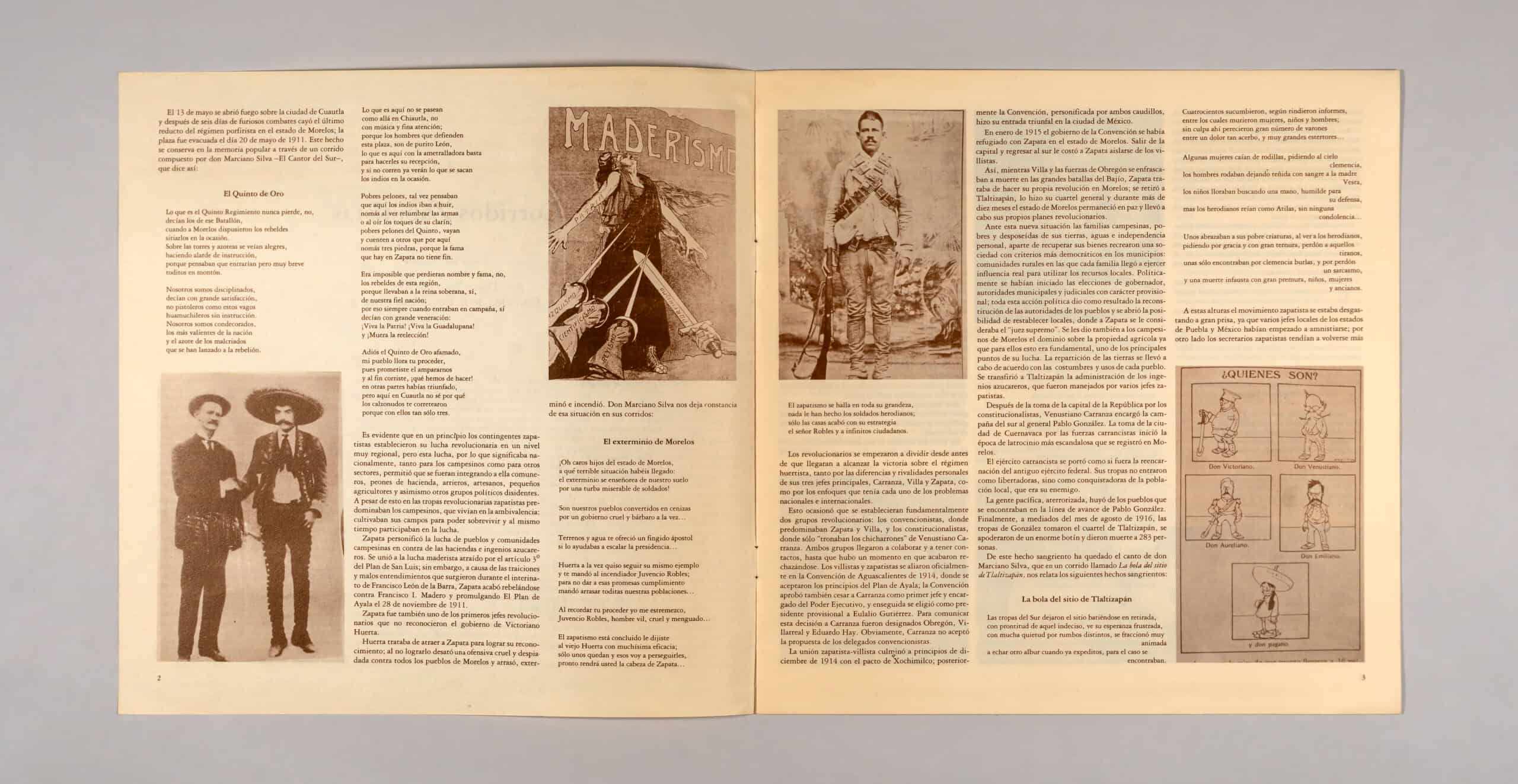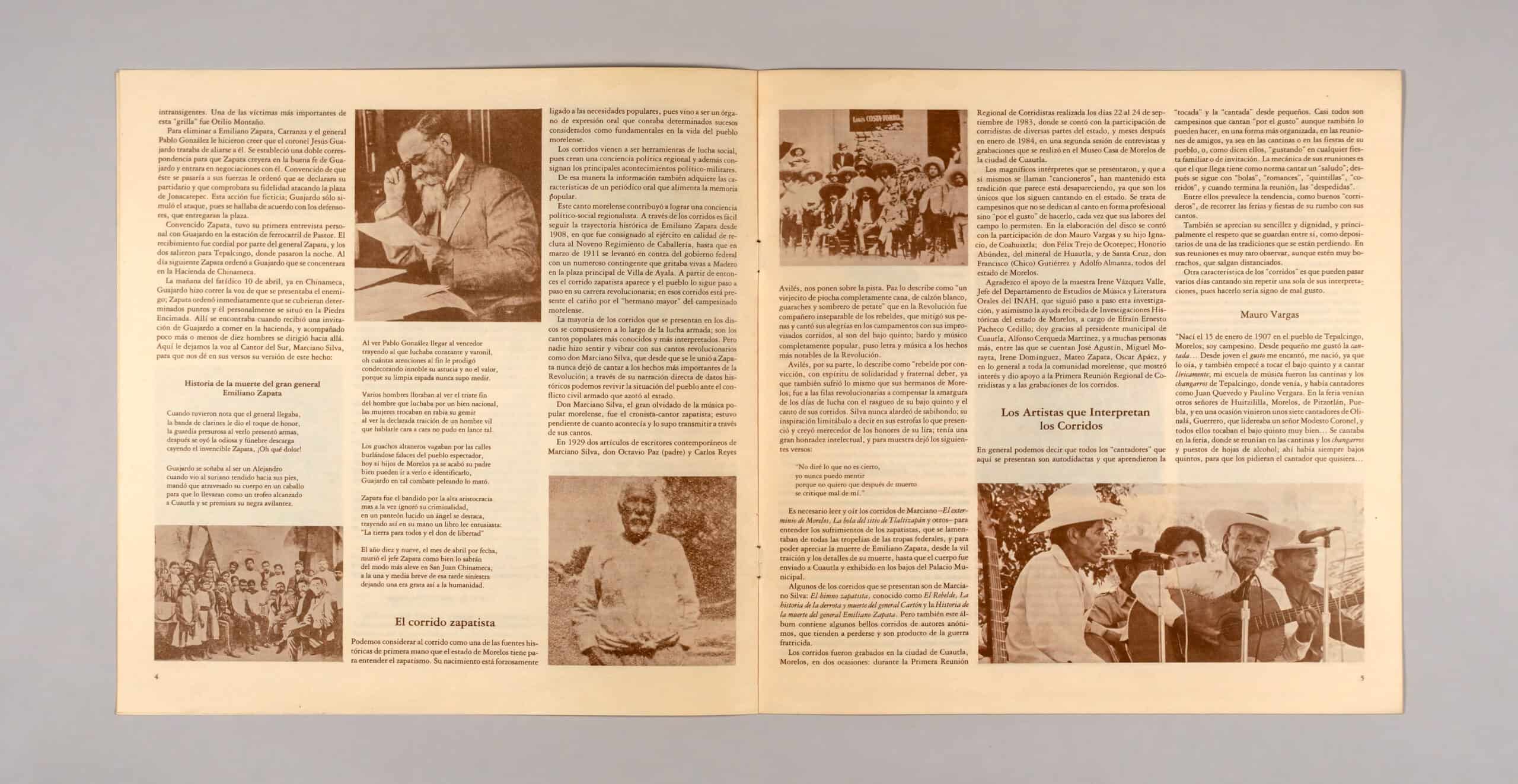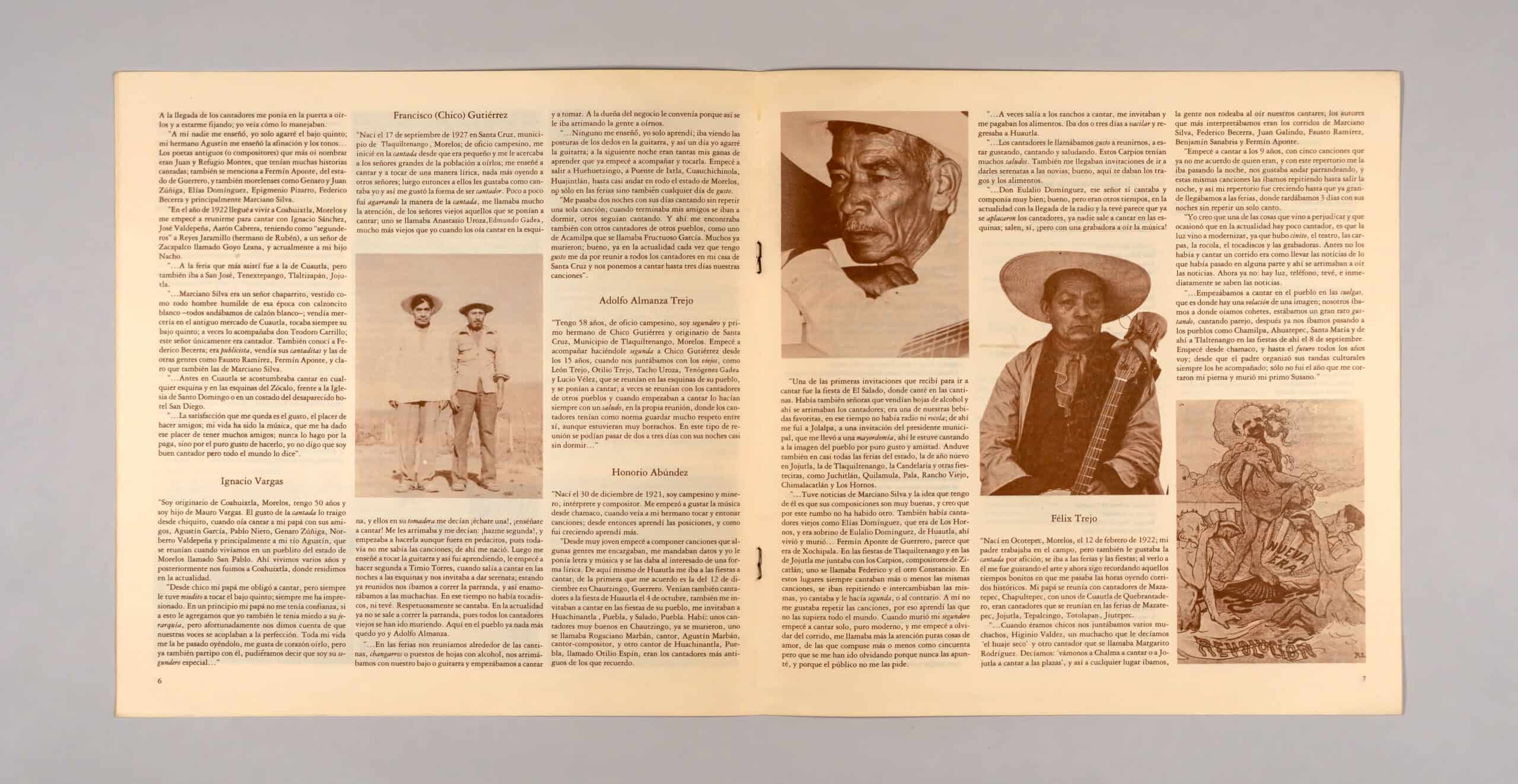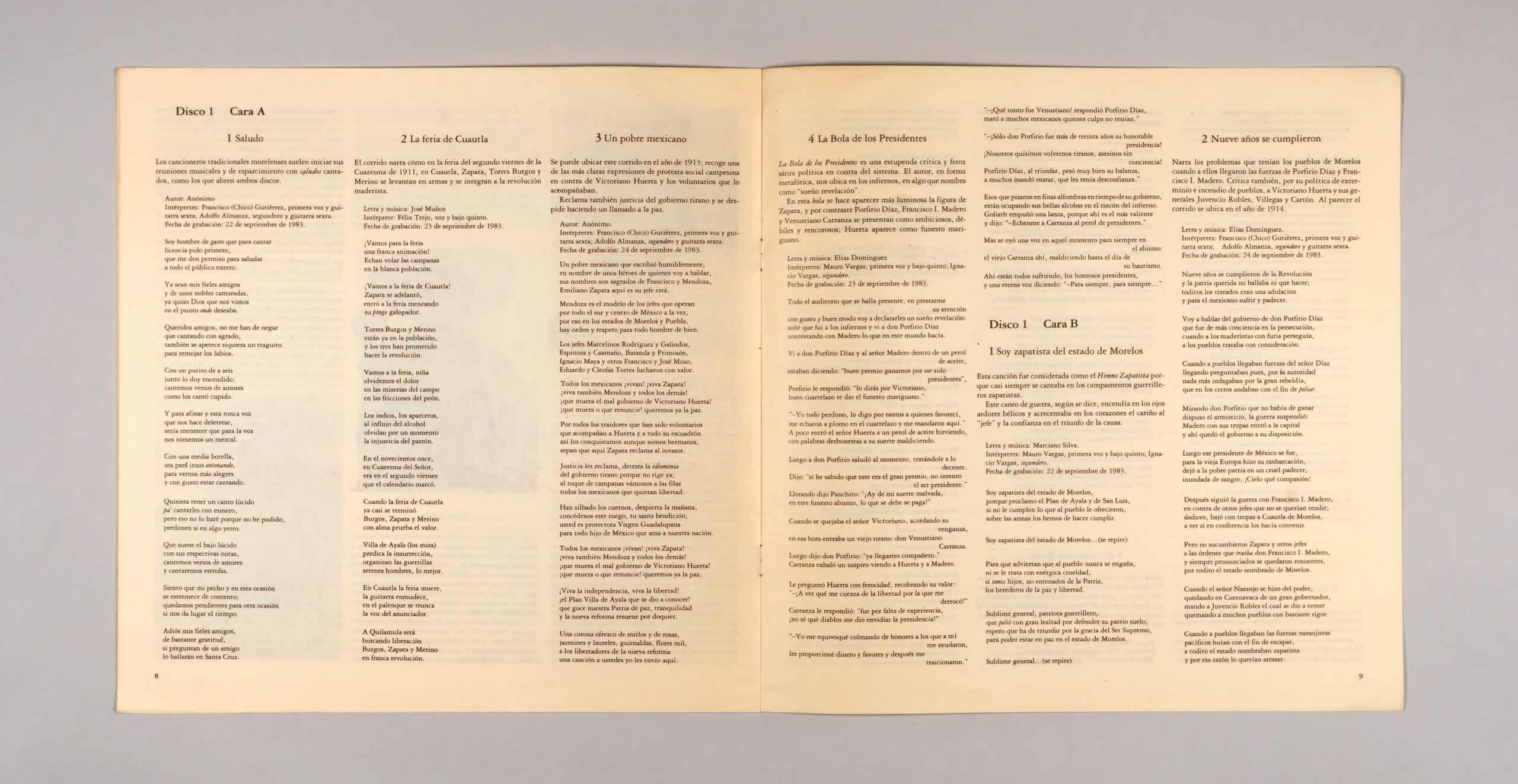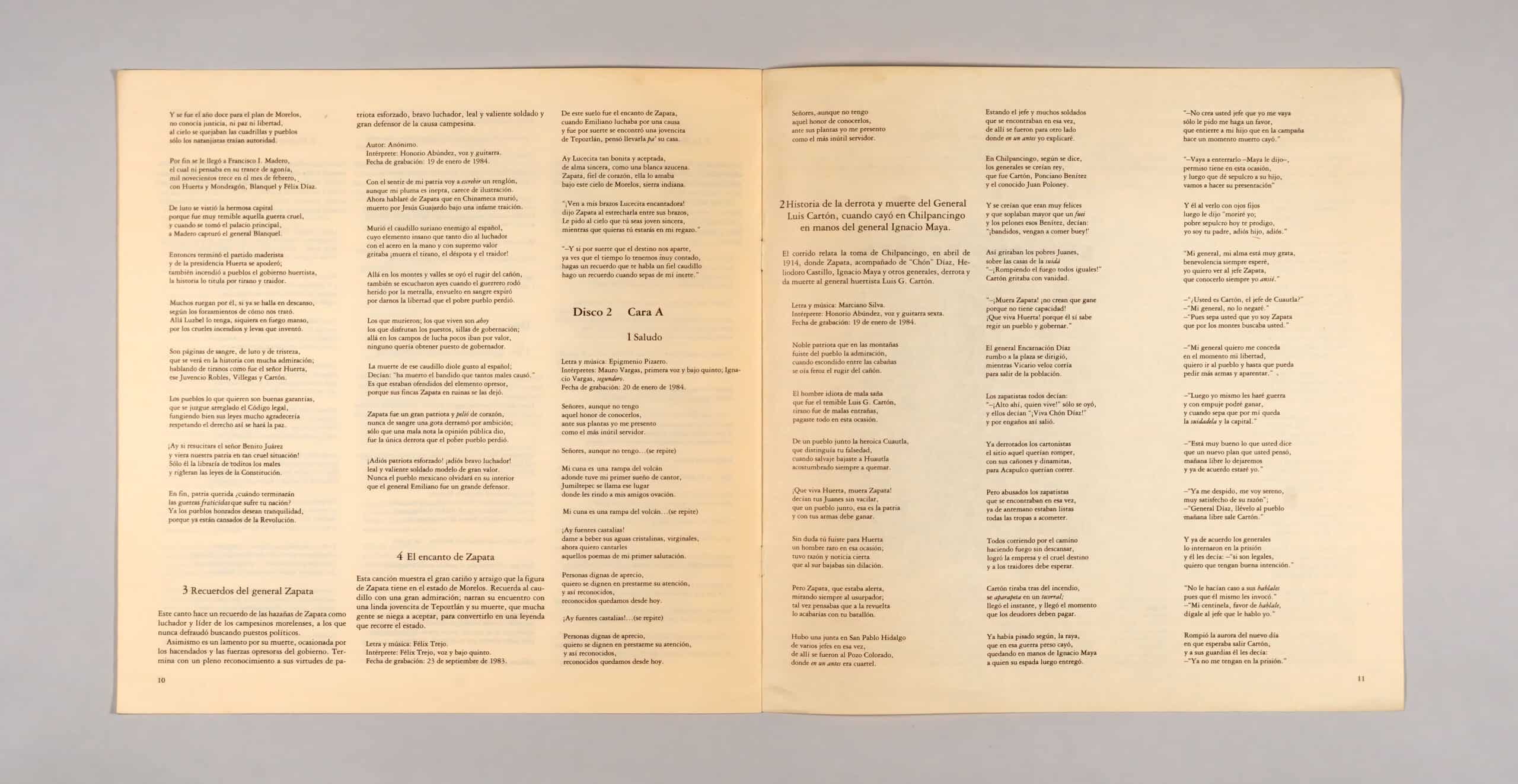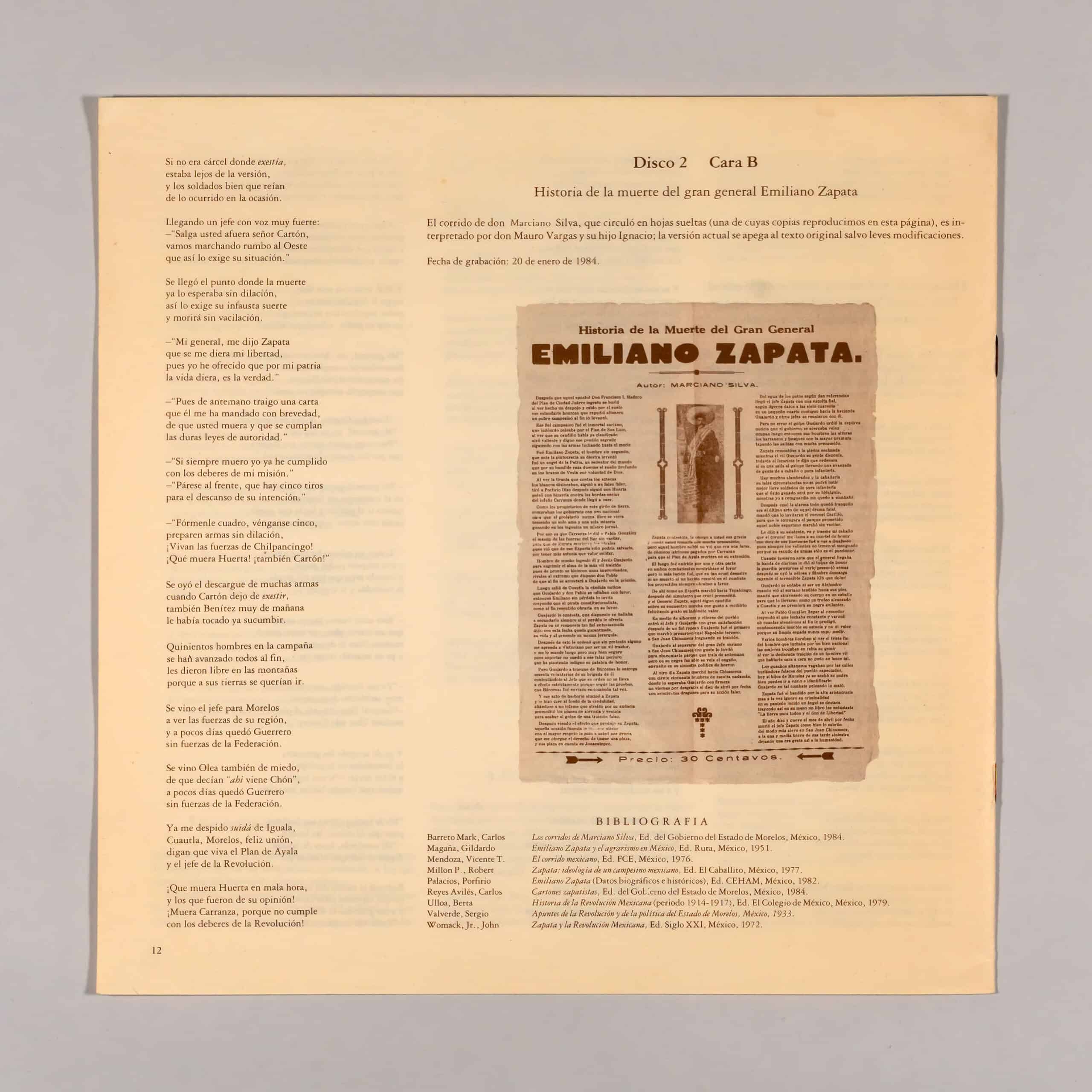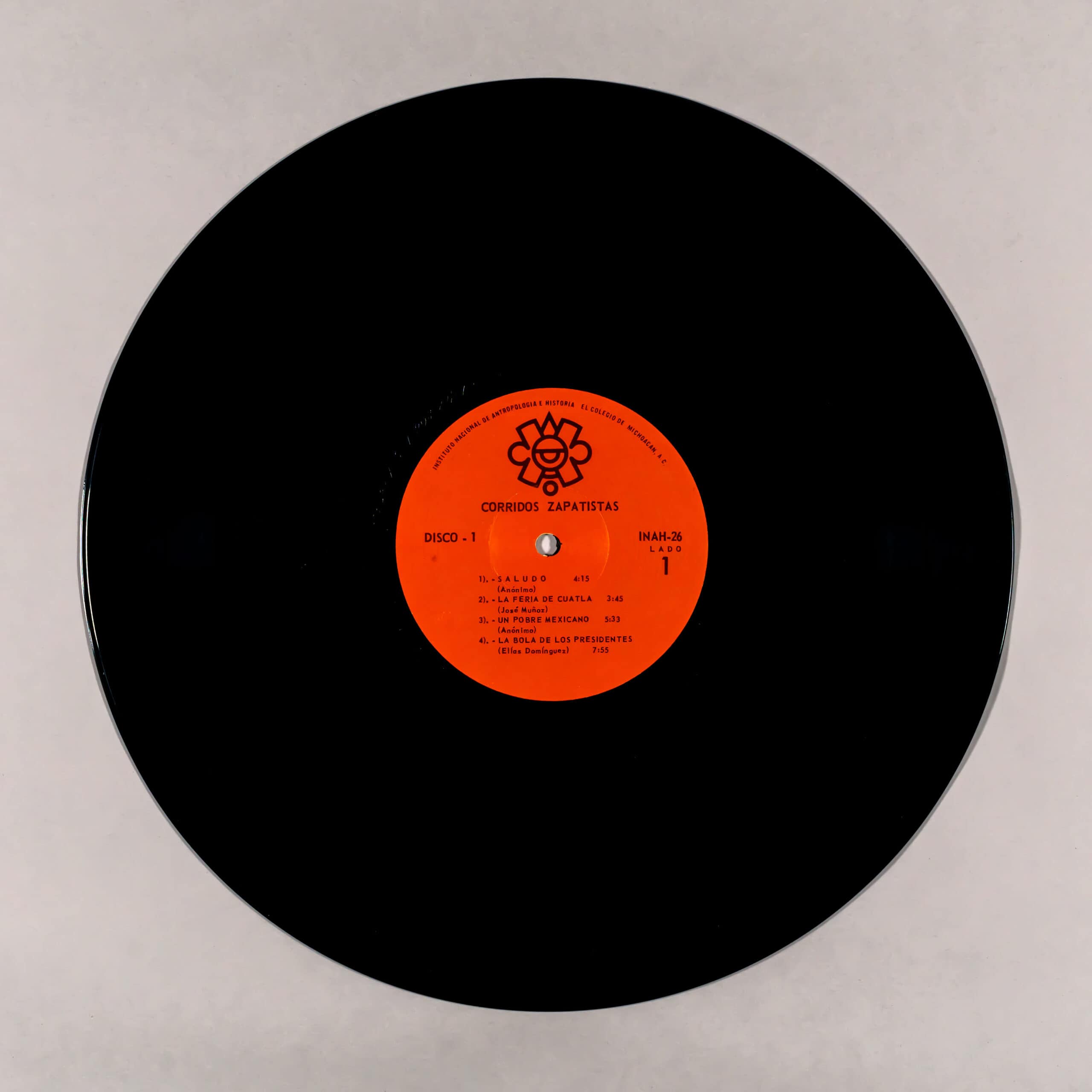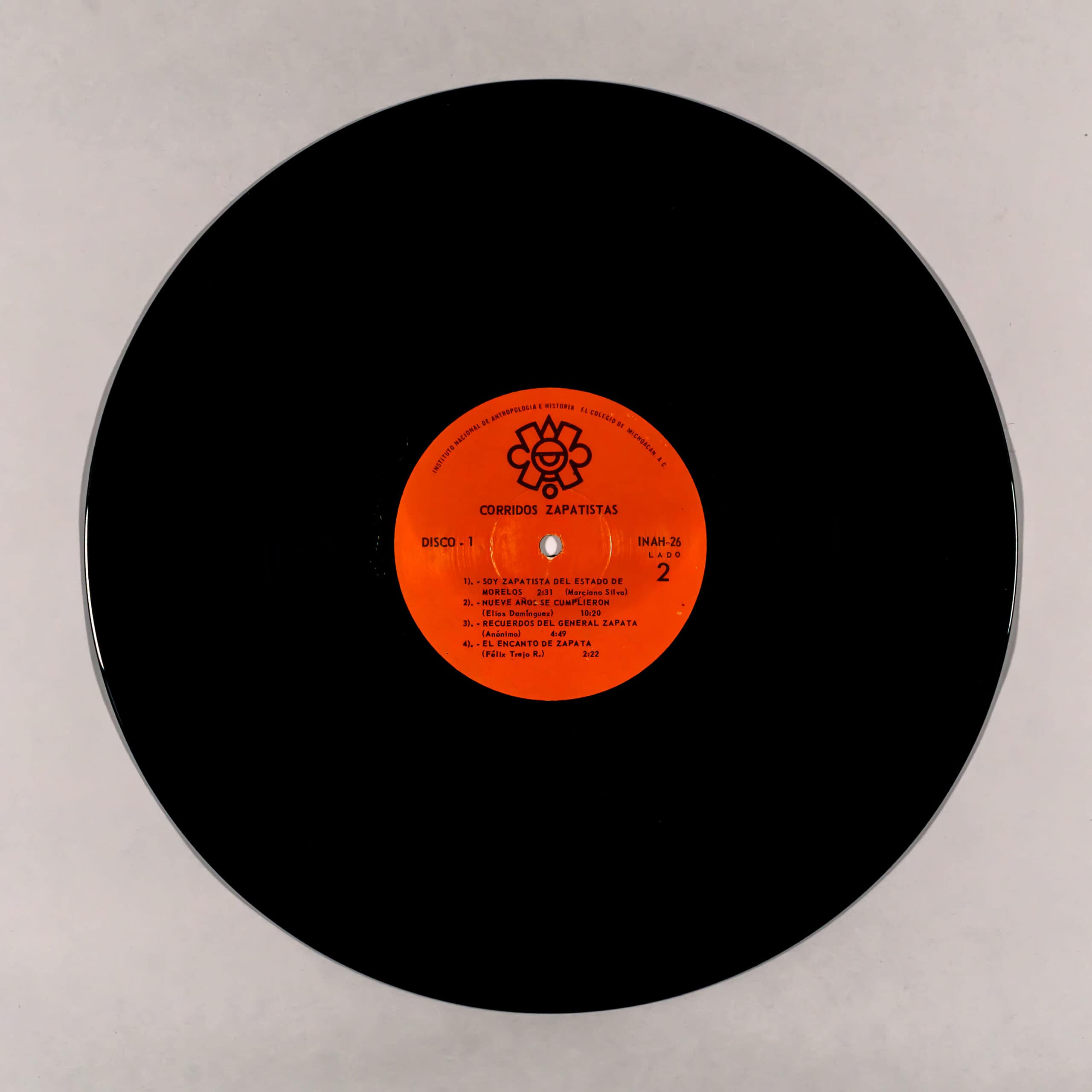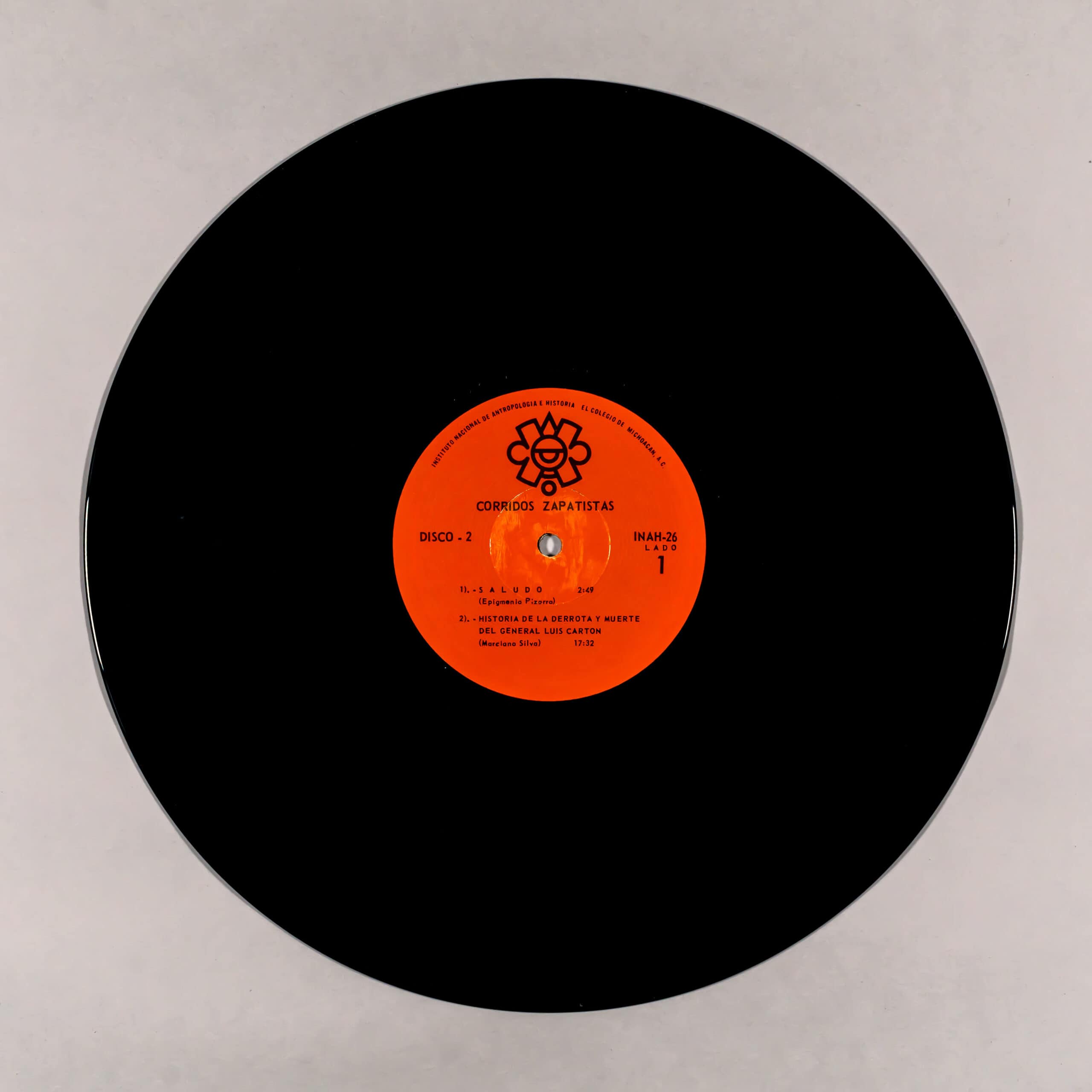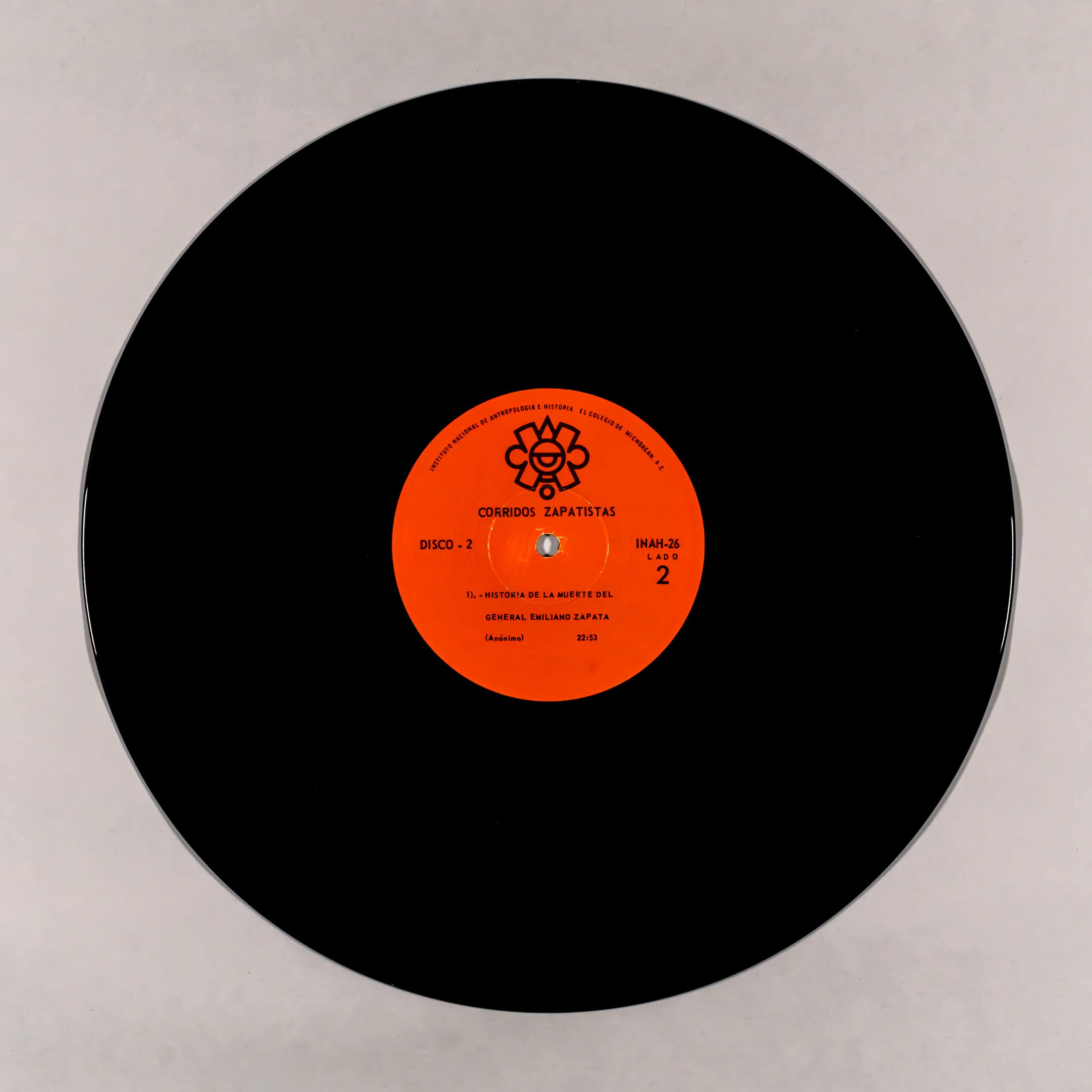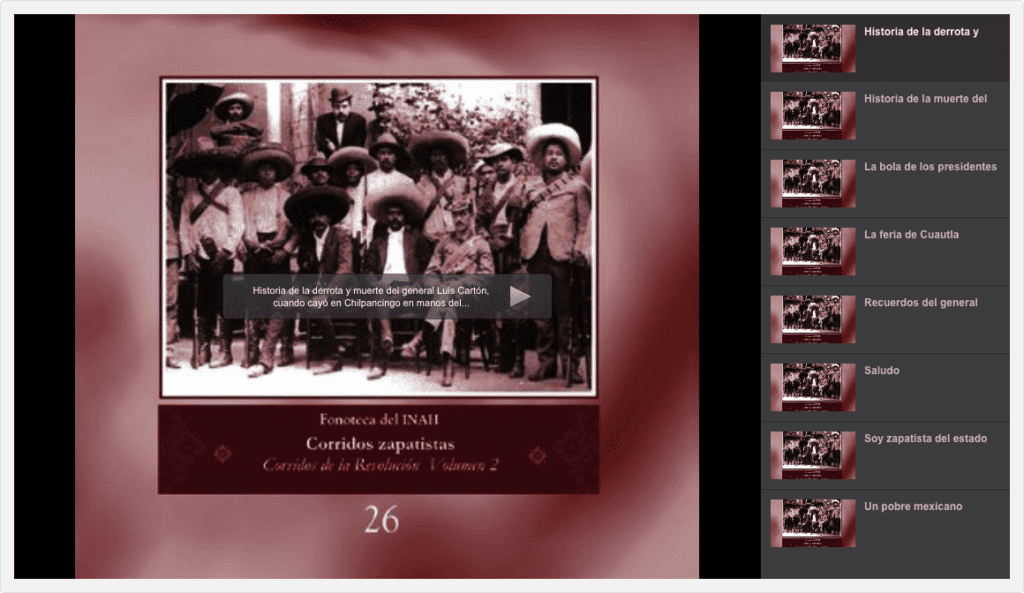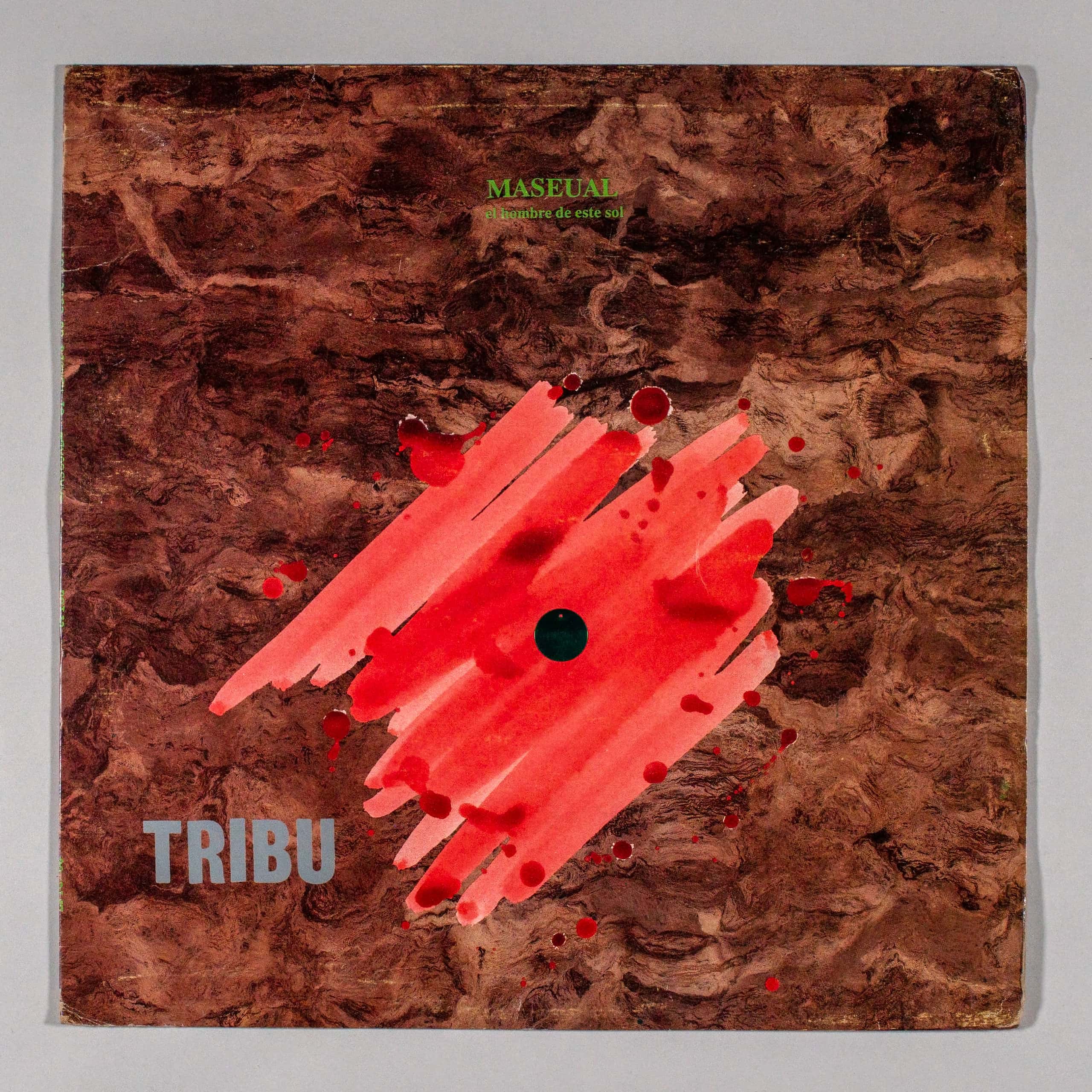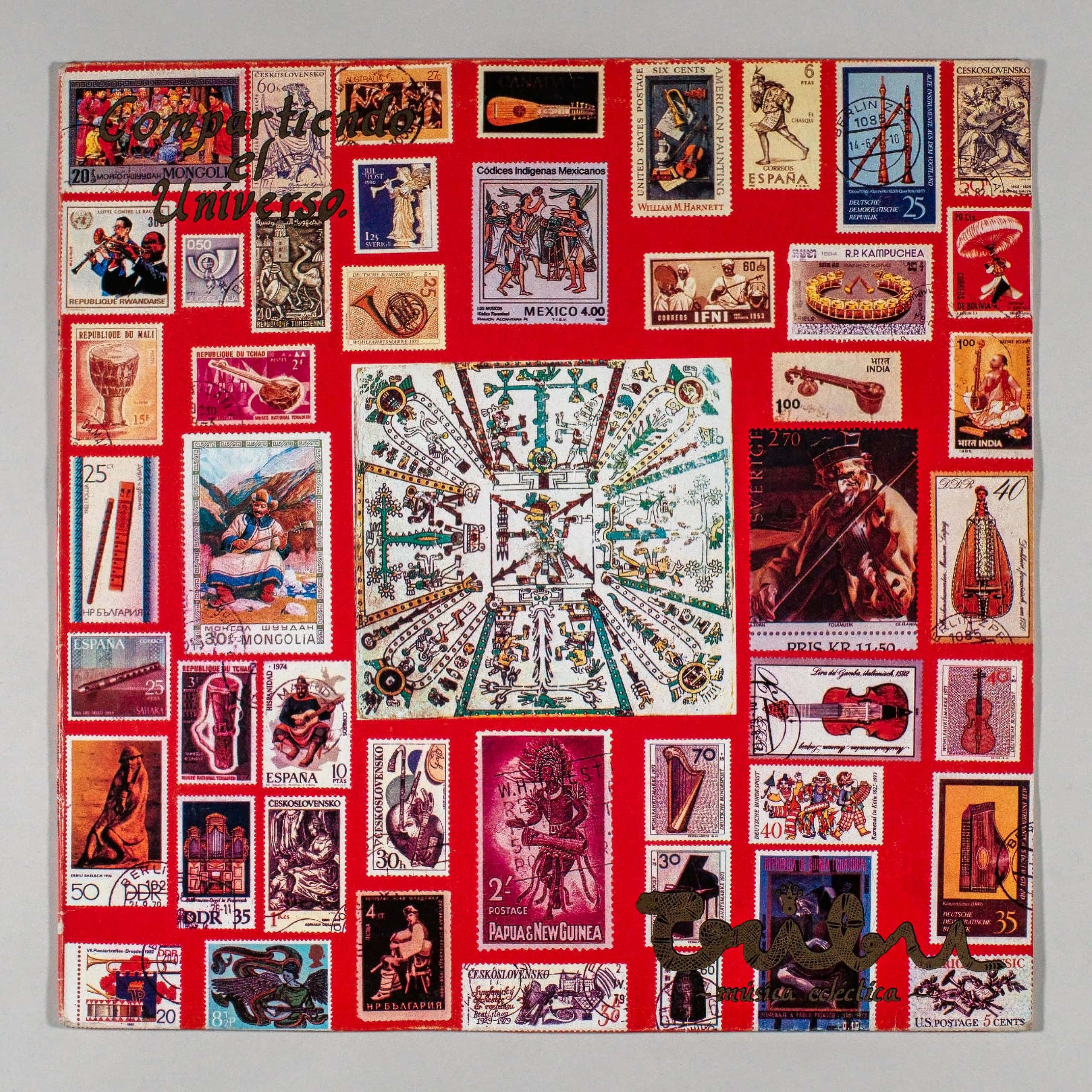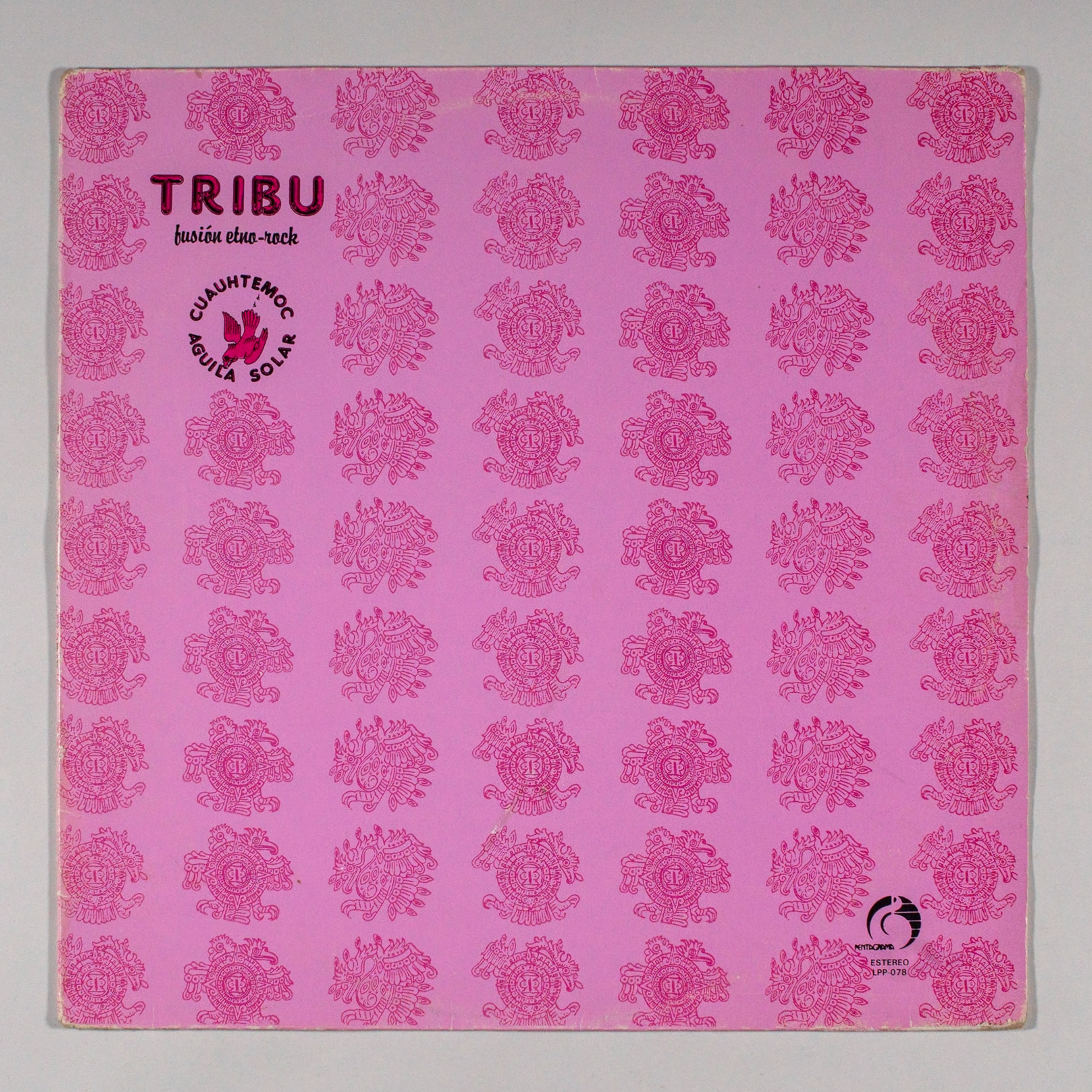ZAPATISTA CORRIDOS
INAH SEP
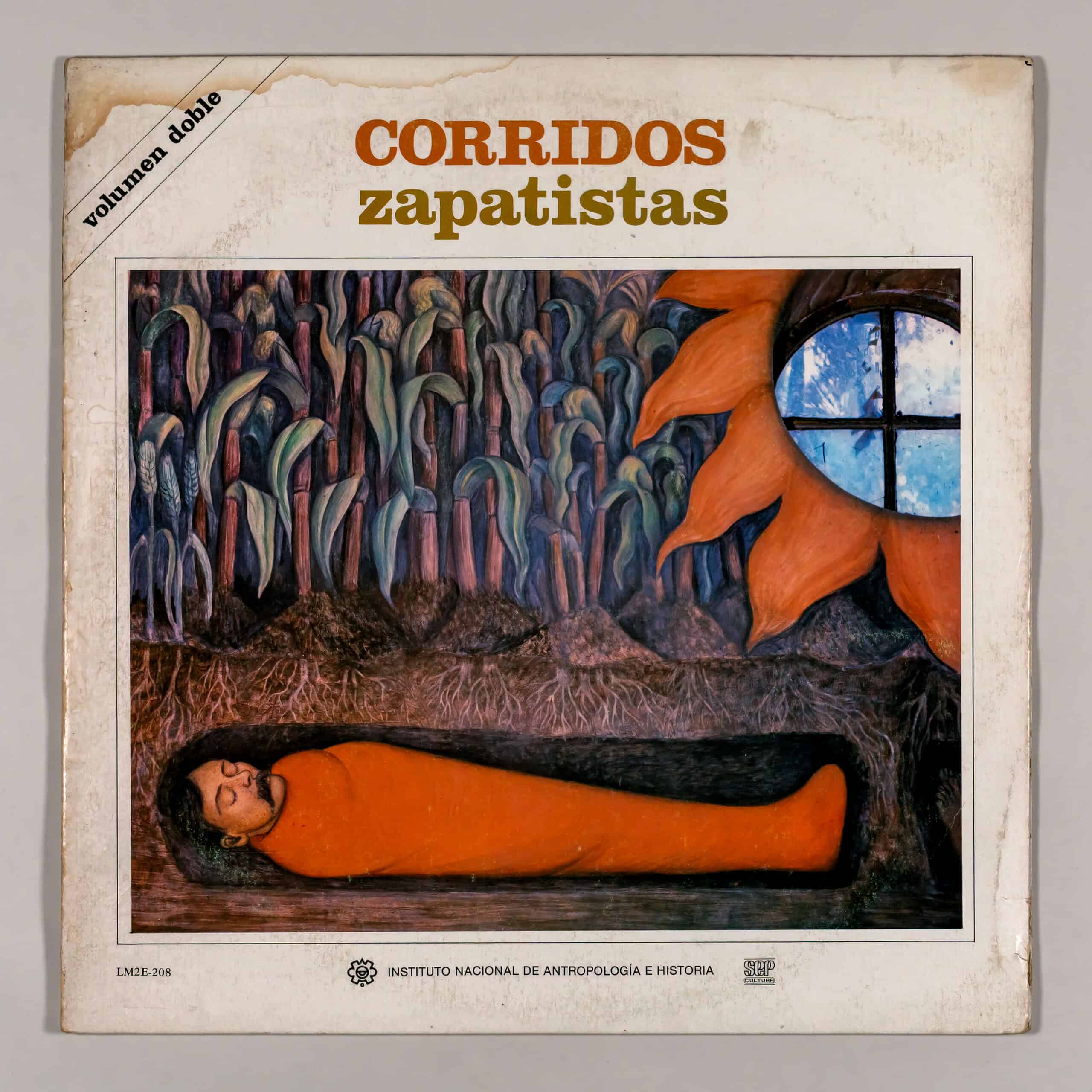
|
Label: INAH-SEP INAH-26, LM2E-208 Released: 1984 |
Country: Mexico Genre: Corrido |
Info:
Zapatista Corridos
Carlos Barreto Mark
Disc 26 INAH
Revolution Corridos vol. 2
The Zapatista Revolution
Since colonial times, in the valleys of Amilpas (Cuautla) and Cuernavaca there have been serious conflicts between the peasant communities and the large sugar estates, which, in addition to seizing the communal lands of the towns, deprived them of their means of subsistence. and forced them to work at the most arduous tasks. This state of affairs worsened in the 19th century, especially after the Reform Laws, which converted communal lands into parcels and allowed landowners to seize them.
Conflicts between communities and landowners intensified during the Porfiriato; in this period the Laws of Colonization of Waste Lands were implemented, which provided supposedly legal weapons to the landowners to usurp the few lands that the communities still possessed.
Of the hundred peasant towns that existed in the state of Morelos in 1910, there was not a single one that was not involved in a legal dispute with one of the surrounding haciendas. The communities of Morelos were always on the defensive with their claims and struggles, since they only wanted to adjust to survival levels and try to ensure that the changes brought about by industrialization in the sugar estates did not affect them so much, for this reason before the Revolution, In the eyes of landowners and officials of the Porfirian government, the peasants of Morelos appeared as enemies of progress, since they opposed the accelerated industrialization of the countryside: with it, the increase in the wealth of the elites was promoted at the cost of the impoverishment of their towns.
Zapata was born in August 1879. At the age of eighteen he was already participating in the defense of the interests of his town, Anenecuilco, which had the problem of adjoining the lands that supposedly belonged to the Coahuixtla and Hospital haciendas. This proximity caused the plundering of land to be repeated constantly, since the landowners were always supported by corrupt judges and even by the rulers themselves, who were also landowners. Faced with this intolerable situation, Emiliano Zapata, leading the principals of his town, went to Cuernavaca, the state capital, in search of justice, which was denied him. Outraged, he urged the residents of Anenecuilco to defend their lands with arms in hand. Zapata’s rebellious attitude alarmed and outraged the landowners, and in a very special way the state governor (the landowner Manuel Alarcón), who resorted to the “leva” system to eliminate an incipient political enemy.
In the year 1908 Zapata arrived in the state capital as a recruit of the Ninth Cavalry Regiment, where he stayed for about six months. It is said that thanks to the intervention of Ignacio de la Torre, owner of the Tenextepango Hacienda, he was released from this service.
By this time the political atmosphere of the state was more than heated due to the renewal of the powers of the state Executive, since the election of the new governor was being prepared after the death of Manuel Alarcón. On the one hand, “the official candidacy” of Colonel Pablo Escandón, owner of the Atlihuayan Hacienda, was presented, supported by the landowners of the region and Porfirio Díaz; on the other side was the opposition candidate Patricio Leyva, who was supported by the people of Morelos. Naturally, Zapata and his companions supported Leyva, knowing that he would lose and that all efforts would be useless against the will of the “big finger.”
After the dictatorship defeated the Leyvistas, they took advantage of the situation to form a large group of dissidents in which Pablo Torres Burgos, Zapata and other Morelenses participated who, when the time came, would support the revolutionary movement of Francisco I. Madero against Porfirio Díaz. .
The group of Leyvista dissidents led by Pablo Torres Burgos rose up in arms in March 1911, the date on which they met in Villa de Ayala shouting ¡Viva Madero! A few days later they took the plaza of Jojutla; in that place Torres Burgos separated from the group due to a series of differences and tried to return to Villa de Ayala; very close to there, government troops caught him and killed him. Upon the death of Torres Burgos, Zapata assumed command of the revolutionary forces and became the chief.
The siege and seizure of the historic city of Cuautla was the first war action that would give notoriety at the national level and political force at the regional level to the then main chief of the Morelense Maderistas: Emiliano Zapata.
The Cuautla square was defended by the local police, by a rural police force and above all by the most select of the Porfirian army: the famous Fifth Regiment, also called “Fifth of Gold”, commanded by Colonel Eutiquio Munguía.
On May 13, fire was opened on the city of Cuautla and after six days of furious combat the last redoubt of the Porfirian regime fell in the state of Morelos; the square was evacuated on May 20, 1911. This fact is preserved in popular memory through a corrido composed by Don Marciano Silva –El Cantor del Sur–, which reads as follows:
The Golden Fifth
What is the Fifth Regiment never loses, no,
said those of that Battalion,
when the rebels ordered Morelos
besiege them on occasion.
On the towers and rooftops they looked happy,
flaunting Instruction,
because they thought they would enter but very briefly
all in a heap
We are disciplined
they said with great satisfaction,
no gunslingers like these bums
guamuchileros without education.
We are decorated
the nation’s bravest
and the scourge of the spoiled
who have launched the rebellion.
What is here do not walk
like there in Chiautla, no
with music and fine attention;
because the men who defend
this square, they are from pure León,
what is here with the machine gun enough
to welcome you,
and if they don’t run they will see what they get
the Indians at the time.
Poor baldheads, maybe they thought
that here the Indians were going to flee,
just seeing the weapons shine
or when hearing the touches of his clarion;
poor baldheads of the Fifth, go
and tell others that around here
just three stones, because fame
there is no end to what is in Zapata.
It was impossible for them to lose name and fame, no,
the rebels of this region,
because they carried the sovereign queen, yes,
of our faithful nation;
that’s why always when they went into campaign, yes
They said with great veneration:
Long live the Homeland! Long live the Guadalupana!
and Death to re-election!
Farewell to the famed Quinto de Oro,
my people cry your proceeding,
Well, you promised to protect us
and at last you ran, what are we to do!
in other places you had triumphed,
but here in Cuautla I don’t know why
the underpants chased you
because with them only three.
It is evident that at first the Zapatista contingents established their revolutionary struggle at a very regional level, but this struggle, because of what it meant nationally, both for the peasants and for other sectors, allowed community members, farm laborers to gradually join it. , muleteers, artisans, small farmers and also other dissident political groups. Despite this, the Zapatista revolutionary troops were dominated by peasants, who lived in ambivalence: they cultivated their fields in order to survive and at the same time participated in the struggle.
Zapata personified the struggle of peasant towns and communities against the haciendas and sugar mills. He joined the Maderista struggle attracted by article 3⁰ of the San Luis Plan; However, due to the betrayals and misunderstandings that arose during the interim of Francisco León de la Barra, Zapata ended up rebelling against Francisco I. Madero and promulgating “El Plan de Ayala” on November 28, 1911.
Zapata was also one of the first revolutionary leaders who did not recognize the government of Victoriano Huerta.
Huerta tried to attract Zapata to gain recognition from him; Failing to do so, he unleashed a cruel and ruthless offensive against all the towns of Morelos and razed, exterminated and burned. Don Marciano Silva leaves us a record of this situation in his corridos:
The extermination of Morelos
Oh dear children of the state of Morelos,
what a terrible situation you have come to:
extermination rules our soil
by a wretched mob of soldiers!
They are our towns turned into ashes
by a cruel and barbaric government at the same time…
Land and water offered you a feigned apostle
If you helped him climb the presidency…
Huerta at the same time wanted to follow his own example
and he sent Juvencio Robles, the arsonist;
not to give those promises fulfillment
He ordered the razing of all our towns…
When I remember your proceeding I shudder,
Juvencio Robles, vile, cruel and diminished man…
Zapatismo is over, you told him
old Huerta with great efficiency;
Only a few are left and I’m going to chase them,
soon you will have Zapata’s head…
Zapatismo is in all its greatness,
the Herodian soldiers have done nothing to him;
only the houses finished with his strategy
Mr. Robles and countless citizens.
The revolutionaries began to divide before they managed to achieve victory over the Huertista regime, both due to the personal differences and rivalries of their three main leaders, Carranza, Villa and Zapata, as well as the approaches that each of the problems had. National and international.
This caused the establishment of two fundamentally revolutionary groups: the conventionists, where Zapata and Villa predominated, and the constitutionalists, where only Venustiano Carranza’s “chicharrones” thundered. Both groups came to collaborate and have contacts, until there was a moment when they ended up rejecting each other. The Villistas and Zapatistas were officially allied in the Aguascalientes Convention of 1914, where the principles of the Plan de Ayala were accepted; The Convention also approved the dismissal of Carranza as first chief and head of the Executive Power, and Eulalio Gutiérrez was immediately elected as provisional president. Obregón, Villarreal and Eduardo Hay were appointed to communicate this decision to Carranza. Obviously, Carranza did not accept the proposal of the convention delegates.
The Zapatista-Villista union culminated in early December 1914 with the Xochimilco pact; later the Convention, personified by both caudillos, made its triumphant entry into Mexico City.
In January 1915 the government of the Convention had taken refuge with Zapata in the state of Morelos. Leaving the capital and returning to the south made it difficult for Zapata to isolate himself from the Villistas.
Thus, while Villa and Obregón’s forces were locked to the death in the great battles of the Bajío, Zapata tried to make his own revolution in Morelos; he withdrew to Tlaltizapan, made it his headquarters, and for more than ten months the state of Morelos remained at peace and carried out its own revolutionary plans.
Faced with this new situation, peasant families, poor and dispossessed of their lands, waters and personal independence, apart from recovering their assets, recreated a society with more democratic criteria in the municipalities: rural communities in which each family came to exert real influence to use local resources. Politically, the elections for governor, municipal and judicial authorities had begun on a provisional basis; All this political action resulted in the reconstitution of the authorities of the towns and the possibility of reestablishing premises was opened, where Zapata was considered the “supreme judge.” The peasants of Morelos were also given control over agricultural property since for them this was fundamental, one of the main points of their struggle. The distribution of the lands was carried out in accordance with the customs and uses of each town. The administration of the sugar mills was transferred to Tlaltizapán, which were managed by various Zapatista bosses.
After the capture of the capital of the Republic by the constitutionalists, Venustiano Carranza entrusted the southern campaign to General Pablo González. The taking of the city of Cuernavaca by the Carrancista forces began the most scandalous era of robbery that was recorded in Morelos.
The Carrancista army behaved as if it were the reincarnation of the old federal army. His troops did not enter as liberators, but as conquerors of the local population, which was their enemy.
The peaceful people, terrified, fled from the towns that were in the line of advance of Pablo González. Finally, in mid-August 1916, González’s troops took over the Tlaltizapán barracks, seized enormous loot and killed 283 people.
From this bloody event, the song of Don Marciano Silva has remained, who in a corrido called La bola del sitio de Tlaltizapán, recounts the following bloody events:
The ball of the siege of Tlaltizapan
The southern troops left the siege in retreat,
promptly from that indecisive, he sees his hope frustrated,
very calmly in different directions, they split up very lively
to throw another gamble when already expedited, for that matter they were.
Four hundred succumbed, according to reports,
among whom women, children and men died;
Without guilt, a large number of men perished there.
between such sharp pain, and very great rattles…
Some women fell to their knees, asking heaven for mercy,
men rolled leaving mother Vesta stained with blood,
the children cried looking for a hand, humble for their defense,
but the Herodians laughed like Attilas, without any sympathy…
Some embraced their poor creatures, seeing the Herodians,
asking for grace and with great tenderness, forgiveness to those tyrants,
Some only found ridicule for mercy, and sarcasm for pardon,
and an unfortunate death with great haste, children, women and the elderly.
By now the Zapatista movement was wearing itself out fast, as various local chiefs in the states of Puebla and Mexico had begun to receive amnesty; on the other hand, the Zapatista secretaries tended to become more intransigent. One of the most important victims of this “grid” was Otilio Montaño.
In order to eliminate Emiliano Zapata, Carranza and General Pablo González made him believe that Colonel Jesús Guajardo was trying to ally himself with him. A double correspondence was established so that Zapata would believe in Guajardo’s good faith and enter into negotiations with him. Convinced that he would go over to his forces, he ordered her to declare herself his supporter and to prove his fidelity by attacking the Jonacatepec plaza. This action was fictitious; Guajardo only simulated the attack, since he was in agreement with the defenders, that they hand over the plaza.
Convinced Zapata, he had his first personal interview with Guajardo at the Pastor railway station. The reception was cordial from General Zapata, and the two left for Tepalcingo, where they spent the night. The next day Zapata orders Guajardo to concentrate on the Chinameca Hacienda.
On the morning of the fateful April 10, already in Chinameca, Guajardo spread the word that the enemy was showing up; Zapata immediately ordered certain points to be covered and he personally stood on the Piedra Encimada. He was there when he received an invitation from Guajardo to eat at the hacienda, and accompanied by more or less ten men he headed there. Here we leave the voice of the Singer of the South, Marciano Silva, so that he can give us his version of this fact in his verses:
History of the death of the great general Emiliano Zapata
When they noticed that the general was arriving,
the band of bugles gave him the touch of honor,
the hasty guard upon seeing him presented arms,
then the hateful and funeral discharge was heard
falling the invincible Zapata, Oh what pain!
Guajardo dreamed of being an Alejandro
when he saw the southerner stretched out at his feet,
he commanded that he traversed his body on a horse
to be carried like a trophy achieved
to Cuautla and reward his black avilance.
Seeing Pablo González reach the winner
bringing the one who fought constant and manly,
oh how much attention he finally lavished on her
decorating his cunning ignoble and not his courage,
because his clean sword never knew how to measure.
Several men cried to see the sad end
of the man who fought for a national good,
the women turned their moans into rage
upon seeing the declared treason of a vile man
that he could not speak to him face to face in such a haul.
The haughty guachos roamed the streets
deceitfully mocking the spectator people,
Today, yes, children of Morelos, your father has finished
Well you can go see it and identify it,
Guajardo in such combat fighting killed him.
Zapata was the bandit for the high aristocracy
but he at the same time he ignored his criminality,
in a lucid pantheon an angel stands out,
thus bringing in his hand a book he enthusiastically reads:
“The land for all and the gift of freedom”
The year nineteen, the month of April by date,
Chief Zapata died as you well know
in the slightest way in San Juan Chinameca,
at a brief half past one of that sinister afternoon
leaving a pleasant era like this to humanity.
The Zapatista corrido
We can consider the corrido as one of the first-hand historical sources that the state of Morelos has to understand Zapatismo. Its birth is necessarily linked to popular needs, since it became an organ of oral expression that recounted certain events considered fundamental in the life of the people of Morelos.
The corridos become tools of social struggle, since they create a regional political conscience and also consign the main political-military events. In this way, the information also acquires the characteristics of an oral newspaper that feeds the popular memory.
This Morelense song contributed to achieve a regionalist political-social conscience. Through the corridos it is easy to follow the historical trajectory of Emiliano Zapata from 1908, when he was consigned to the army as a recruit to the Ninth Cavalry Regiment, until in March 1911 he rose up against the federal government with a large contingent. who shouted long live Madero in the main square of Villa de Ayala. From then on the Zapatista corrido appears and the people follow it step by step in its revolutionary career; in those corridos the affection for the “older brother” of the Morelos peasantry is present.
Most of the corridos that appear on the discs were composed during the armed struggle; They are the best known and most interpreted popular songs. But no one made people feel and vibrate with his revolutionary songs like Don Marciano Silva, who since he joined Zapata never stopped singing about the most important events of the Revolution; through his direct narration of historical data we can relive the situation of the people before the armed civil conflict that hit the state.
Don Marciano Silva, the great forgotten of Morelense popular music, was the Zapatista chronicler-singer; he was aware of what was happening and knew how to transmit it through his songs.
In 1929 two articles by contemporary writers of Marciano Silva, Don Octavio Paz (father) and Carlos Reyes Avilés, put us on the track. Paz describes him as “a little old man with a completely gray hair, white pants, sandals and a petate hat” who during the Revolution was an inseparable companion of the rebels, who mitigated their sorrows and sang their joys in the camps with his improvised corridos, to the they are from the lower fifth; bard and completely popular musician, he put lyrics and music to the most notable events of the Revolution.
Avilés, for his part, describes him as “a rebel by conviction, with a spirit of solidarity and fraternal duty, since he also suffered the same as his brothers in Morelos; he went to the revolutionary ranks to compensate for the bitterness of the days of struggle with the strumming his bajo quinto and singing his corridos. Silva never boasted of being a know-it-all; his inspiration limited him to saying in his stanzas what he witnessed and believed worthy of the honors of his lyre; he had great intellectual honesty, and as a sample he left the following verses:
“I will not say what is not true,
I can never lie
because I do not want that after death
bad criticism of me.”
It is necessary to read and listen to Marciano’s corridos -The extermination of Morelos, The ball of the siege of Tlaltizapan and others- to understand the sufferings of the Zapatistas, who lamented all the outrages of the federal troops, and to be able to appreciate the death of Emiliano Zapata, from the vile betrayal and the details of his death, until the body was sent to Cuautla and exhibited in the basement of the Municipal Palace.
Some of the corridos that are presented are by Marciano Silva: The Zapatista anthem, known as El Rebelde, The story of the defeat and death of General Cartón and the Story of the death of General Emiliano Zapata. But this album also contains some beautiful corridos by anonymous authors, who tend to get lost and are the product of the fratricidal war.
The corridos were recorded in the city of Cuautla, Morelos, on two occasions: during the First Meeting
Corridistas Regional held on September 22 to 24, 1983, where corridistas from various parts of the state participated, and months later in January 1984, in a second session of interviews and recordings that: held at the Museum House of Morelos in the city of Cuautla.
The magnificent interpreters who appeared, and who call themselves “cancioneros”, have maintained this tradition that seems to be disappearing, since they are the only ones who continue to sing them in the state. These are peasants who do not dedicate themselves to singing professionally but “for the pleasure” of doing it, whenever their field work allows it. Don Mauro Vargas and his son Ignacio, from Coahuixtla, participated in the production of the record; Don Felix Trejo of Ocotepec; Honorio Abúndez, from Huautla ore, and from Santa Cruz, Don Francisco (Chico) Gutiérrez and Adolfo Almanza, all from the state of Morelos.
I am grateful for the support of teacher Irene Vázquez Valle, Head of the INAH’s Department of Oral Music and Literature Studies, who followed this research step by step, and also for the help received from Historical Research of the state of Morelos, in charge of Efraín Ernesto Pacheco. cedillo; I thank the municipal president of Cuautla, Alfonso Cerqueda Martínez, and many more people, including José Agustín, Miguel Morayta, Irene Domínguez, Mateo Zapata, Oscar Apáez, and in general the entire community of Morelos, who showed interest and gave support to the First Regional Meeting of Corridistas and to the recordings of the corridos.
The Artists who Perform the Corridos
In general, we can say that all the “cantadores” that appear here are self-taught and that they learned the “tocada” and the “cantada” since they were little. Almost all of them are peasants who sing “for the fun of it” although they can also do it, in a more organized way, at gatherings of friends, either in the canteens or at their town festivals, or, as they say, “liking ” at any family party or invitation. The mechanics of their meetings is that the one who arrives has as a norm to sing a “greeting”; then it continues with “bolas”, “romances”, “quintillas”, “corridos”, “, and when the meeting ends, the “farewells”.
Among them the tendency prevails, like good “corrideros”, to tour the fairs and festivals of their area with their songs.
Their simplicity and dignity are also appreciated, and mainly the respect they have for each other, as custodians of one of the traditions that are being lost. In their meetings it is very rare to observe, even if they are very drunk, that they come away from each other.
Another characteristic of the “corridos” is that they can spend several days singing without repeating a single one of their interpretations, since doing so would be a sign of bad taste.
Mauro Vargas
“I was born on January 15, 1907 in the town of Tepalcingo, Morelos; I am a peasant. Since I was little I liked the cantada… Since I was young I loved the taste, it was born to me, since I heard it, and I also began to play the bass fifth grade and to sing lyrically, my music school was the cantinas and changarros of Tepalcingo, where I came from, and there were singers like Juan Quevedo and Paulino Vergara.Other gentlemen from Huitzililla, Morelos, from Pitzotlán, Puebla, and in one On this occasion, about seven singers from Olinalá, Guerrero, led by a Modesto Coronel, and all of them played the bajo quinto very well… They sang at the fair, where they met in the canteens and the changarros and alcohol leaves stands ; there were always bajos quintos there, for any singer who wanted to request them…
When the singers arrived, I would stand at the door to listen to them and to be paying attention; I saw how they handled it.”
Nobody taught me, I only took the low fifth; my brother Agustín taught me tuning and tones… The ancient poets (or composers) that I heard the most were Juan and Refugio Montes, who had many sung stories; Fermín Aponte, from the state of Guerrero, and also people from Morelos such as Genaro and Juan Zúñiga, Elías Domínguez, Epigmenio Pizarro, Federico Becerra and mainly Marciano Silva are also mentioned.
“In the year 1922 I came to live in Coahuixtla, Morelos and I began to get together to sing Ignacio Sánchez, José Valdepeña, Aarón Cabrera, having as “second hands” Reyes Jaramillo (Rubén’s brother), a gentleman from Zacapalco named Goyo Leana, and currently my son Nacho.”
…The fair that I attended the most was the one in Cuautla, but I also went to San José, Tenextepango, Tlaltizapán, Jojutla.
“…Marciano Silva was a short man, dressed like every humble man of that time in white underwear –we all wore white underwear–; he sold haberdashery in the old Cuautla market, he always played his bajo quinto; sometimes Don Teodoro Carrillo accompanied him; This gentleman was only a singer. I also met Federico Becerra; He was a publicist, he sold his cantaditas and those of other people like Fausto Ramírez, Fermín Aponte, and of course also those of Marciano Silva.”
“…Before, in Cuautla it was customary to sing in any corner and in the corners of the Zócalo, in front of the Church of Santo Domingo or on the side of the now-defunct San Diego hotel.”
“…The satisfaction that I have left is the taste, the pleasure of making friends; my life has been music, which has given me the pleasure of having many friends; I never do it for the pay, but for the sheer joy of doing it, I don’t say I’m a good singer but everyone says so”.
Ignacio Vargas
“I am originally from Coahuixtla, Morelos, I am 50 years old and I am the son of Mauro Vargas. I have loved singing since I was little, when I used to hear my father sing with his friends, Agustín García, Pablo Nieto, Genaro Zúñiga, Norberto Valdepeña and mainly my uncle Agustín, who used to get together when we lived in a small town in the state of Morelos. named Saint Paul. We lived there for several years and later we went to Coahuixtla, where we currently reside.”
“Since I was a child, my dad forced me to sing, but I was always afraid of playing the bajo quinto; he has always impressed me. At first my dad did not trust me, if we add to this that I was also afraid of his hierarchy, but fortunately we realized that our voices matched perfectly. I have spent my whole life listening to him, I really like to hear him, but he also participated with him, we could say that I am his special second hand… ”
Francisco (Chico) Gutiérrez
“I was born on September 17, 1927 in Santa Cruz, municipality of Tlaquiltenango, Morelos; By peasant trade, I started singing since I was little and I would approach the great gentlemen of the population to hear them; I taught myself to sing and play in a lyrical way, just listening to other gentlemen; then then they liked how I sang and that’s how I liked the way of being a singer. Little by little I was grasping the way of the cantada, it called my attention a lot, from the old gentlemen those who began to sing; one was called Anastasio Uroza, Edmundo Gadea, much older than me when I heard them sing on the corner, and they would tell me in their tomadera: throw yourself one!, teach yourself to sing! I would get close to them and they would say: make me second!, and I would start to do it even if it was in little pieces, because I still didn’t know the songs; from there I was born. Then I taught myself to play the guitar and that’s how I learned, I began to play second to Timio Torres, when he would go out to sing on street corners at night and invite us to serenade; Once we were together, we would go out on a spree, and that’s how we made the girls fall in love. At that time there was no record player, no TV. It was respectfully sung. At present, the party no longer goes out to run, because all the old singers have gradually died. Here in the town nothing else remains me and Adolfo Almanza.”
“…At the fairs we would gather around the canteens, changarros or stalls with leaves with alcohol, we would get close with our bass or guitar and we would start to sing and drink. It was convenient for the owner of the business because that way people would come closer to hear us.”
“…No one taught me, I just learned; he was seeing the positions of the fingers on the guitar, and so one day I grabbed the guitar; The following night my desire to learn was so great that I already began to accompany and play it. I started going out to Huehuetzingo, Puente de Ixtla, Cuauchichinola, Huajintlán, until I was almost everywhere in the state of Morelos, not only at fairs but also on any day of pleasure.”
“I spent two nights and days singing without repeating a single song; When I finished my friends went to sleep, others continued singing. And there I also met other singers from other towns, like one from Acamilpa named Fructuoso García. Many have already died; Well, nowadays whenever I feel like it I get together with all the singers in my house in Santa Cruz and we start to sing our songs for up to three days.”
Adolfo Almanza Trejo
“I am 58 years old, a peasant by trade, I am the second cousin and first cousin of Chico Gutiérrez and originally from Santa Cruz, Municipality of Tlaquiltenango, Morelos. I began to accompany Chico Gutiérrez as a second since I was 15 years old, when we would get together with the old ones, like León Trejo, Otilio Trejo, Tacho Uroza, Tenógenes Gadea and Lucio Vélez, who would meet in the corners of their town, and get to know each other. to sing; Sometimes they met with singers from other towns and when they began to sing they always did so with a greeting, in the meeting itself, where the singers had as a rule to respect each other, even if they were very drunk. In this type of meeting you could spend two to three days with almost sleepless nights…”
Honorio Abundez
“I was born on December 30, 1921, I am a farmer and miner, performer and composer. I started to like music when I was a kid, when I saw my brother play and sing songs; since then I learned the positions, and as I got older I learned more.”
“From a very young age I began to compose songs that some people commissioned me, they sent me data and I put lyrics and music and gave them to the interested party in a lyrical way. From right here in Huautla I used to go to parties to sing; The first one that I remember is the one on December 12 in Chautzingo, Guerrero. Singers also came to the Huautla festival on October 4, they also invited me to sing at their town’s festivals, they invited me to Huachinantla, Puebla, and Salado, Puebla. There were some very good singers in Chautzingo, they have already died, one was called Rogaciano Marbán, singer, Agustín Marbán, singer-songwriter, and another singer from Huachinantla, Puebla, named Otilio Espín, they were the oldest singers that I remember.”
“One of the first invitations I received to go sing was the El Salado party, where I sang in the cantinas. There were also ladies who sold leaves of alcohol and the singers used to gather there; It was one of our favorite drinks, at that time there was no radio or jukebox; From there I went to Jolalpa, at the invitation of the municipal president, who took me to a mayordomia, there I was singing to the image of the town for pure pleasure and friendship. I also went to almost all the state fairs, the New Year’s fair in Jojutla, the one in Tlaquiltenango, La Candelaria and other little festivals, such as Juchitlan, Quilamula, Pala, Rancho Viejo, Chimalacatlan and Los Hornos.”
“…I heard from Marciano Silva and the idea I have of him is that his compositions are very good, and I believe that there has been no other direction in this direction. There were also old singers like Elías Domínguez, who was from Los Hornos, and was the nephew of Eulalio Domínguez, from Huautla, where he lived and died… Fermín Aponte de Guerrero, it seems he was from Xochipala. At the festivals in Tlaquiltenango and in Jojutla he would join the Carpios, composers from Zicatlán; one was called Frederick and the other Constantius. In these places they always sang more or less the same songs, the same ones were repeated and exchanged, I sang and did second, or vice versa. I didn’t like to repeat the songs, that’s why I learned the ones that not everyone knew. When my second hand died I began to sing alone, pure modern, and I began to forget about the corrido, pure things of love caught my attention more, of which I composed more or less fifty but which I have gradually forgotten because I never wrote them down , and because the public does not ask me for them.”
“…Sometimes I went out to the ranches to sing, they invited me and paid for my food. He would go two or three days to hesitate and return to Huautla.”
“…We singers called it a pleasure to get together, to be enjoying ourselves, singing and greeting. These Carpios had many greetings. I also received invitations to go serenade the brides; well, here they gave you drinks and food.”
“…Don Eulalio Domínguez, that gentleman did sing and compose very well; Well, but those were other times, nowadays with the advent of radio and television, it seems that the singers have subsided, no one goes out to sing on the corners anymore; They go out, yes, but with a tape recorder to listen to the music!”
Felix Trejo
“I was born in Ocotepec, Morelos, on February 12, 1922; my father worked in the fields, but he also liked singing as a hobby; he went to fairs and festivals; When I saw him I began to like art and now I still remember those beautiful times when I spent hours listening to historical corridos. My father met with singers from Mazatepec, Chapultepec, with some from Cuautla de Quebrantadero, they were singers who met at the fairs of Mazatepec, Jojutla, Tepalcingo, Totolapan, Jiutepec…”
“When we were kids, several boys would get together, Higinio Valdez, a boy we called ‘el huaje seco’ and another singer named Margarito Rodríguez. We used to say: ‘Let’s go to Chalma to sing or to Jojutla to sing in the plazas’, and so wherever we went, people surrounded us when they heard our songs; the authors that we performed the most were the corridos by Marciano Silva, Federico Becerra, Juan Galindo, Fausto Ramírez, Benjamín Sanabria and Fermín Aponte.”
“I started singing at the age of 9, with five songs that I no longer remember who they were, and with this repertoire I spent the night, we liked to party, and we would repeat these same songs until the night came out, and This is how my repertoire grew until we were big enough to go to the fairs, where it took us 3 days and nights without repeating a single song.”
“I believe that one of the things that came to harm and that caused that there are currently few singers, is that the light came to modernize, since there was a movie theater, the theater, the tents, the jukebox, the record player and the recorders. . Before there weren’t any and singing a corrido was like bringing the news of what had happened somewhere and that’s where they went to hear the news. Not anymore: there is light, telephone, television, and the news is immediately known.”
“…We began to sing in the town in Las Colgas, which is where there is a vigil for an image; We went to where we heard rockets, we were enjoying ourselves for a long time, singing evenly, then we went to towns like Chamilpa, Ahuatepec, Santa María and from there to Tlaltenango in the festivities there on September 8. I started as a kid, and until the future every year I go; since the father organized his cultural sessions, I have always accompanied them; I just wasn’t there the year my leg was cut off and my cousin Susano died.”
Disc 1
Face A
1 Greeting
The traditional songbooks from Morelos usually start their musical and entertainment gatherings with sung greetings, like the ones that open both albums.
Author: Anonymous
Performers: Francisco (Chico) Gutiérrez, first voice and sixth guitar; Adolfo Almanza, second hand and sixth guitar.
Recording date: September 22, 1983.
I’m a spending man to sing
license I ask first,
give me permission to say hello
to the entire public.
Whether they are my faithful friends
and some noble comrades,
God wanted us to see each other
at the point where you wanted.
Dear friends, you must not deny me
that singing with pleasure,
you also fancy a little drink
to soak the lips.
With a cigar of six
together I give it on;
let’s sing verses of love
as he sang them cupid.
And to tune and this hoarse voice
that makes us spell,
it would be necessary for the voice
Let’s have a mezcal.
With a half bottle,
be to go intoning,
to see us happier
and with pleasure to be singing.
I would like to have a lucid song
to sing carefully,
but I won’t do that because I couldn’t
Forgive me if I’m wrong in something.
Let the lucid bass sound
with their respective notes
let’s sing verses of love
and we will sing verses
I feel my chest and this time
he shudders with joy;
we are waiting for another time
if time allows us.
Goodbye my faithful friends,
much gratitude,
if they ask about a friend
they will find it in Santa Cruz.
2 Cuautla fair
The corrido narrates how at the fair on the second Friday of Lent in 1911, in Cuautla, Zapata, Torres Burgos and Merino rose up in arms and joined the Maderista revolution.
Lyrics and music: José Muñoz
Performer: Félix Trejo, voice and bajo quinto.
Recording date: September 23, 1983.
let’s go to the fair
a frank animation!
The bells fly
in the white population.
Let’s go to the Cuautla fair!
Zapata stepped forward,
he entered the fair waving
the galloping pingo of him.
Torres Burgos and Merino
They are already in the population
and all three have promised
make the revolution
Let’s go to the fair, girl
let’s forget the pain
in the miseries of the field
in pawn frictions.
The Indians, the sharecroppers,
to the influence of alcohol
forget for a moment
the injustice of the boss.
In nine hundred and eleven
in Lent of the Lord,
it was on the second friday
that the calendar marked.
When the Cuautla fair
it’s almost over
Burgos, Zapata and Merino
with soul test the value.
Villa de Ayala (looks at them)
preach the insurrection,
organize the guerrillas
seventy men, the best.
In Cuautla the fair dies,
the guitar is silent,
in the palenque it is truncated
the announcer’s voice.
To Quilamula it will be
looking for release
Burgos, Zapata and Merino
in frank revolution.
3 A poor mexican
This corrido can be located in the year 1913; includes one of the clearest expressions of peasant social protest against Victoriano Huerta and the volunteers who accompanied him.
He also demands justice from the tyrannical government and says goodbye calling for peace.
Author: Anonymous.
Performers: Francisco (Chico) Gutiérrez, first voice and sixth guitar; Adolfo Almanza, second hand and sixth guitar.
Recording date: September 24, 1983.
A poor Mexican who humbly wrote,
in the name of some heroes of whom I am going to speak,
their names are sacred to Francisco and Mendoza,
Emiliano Zapata is his boss here.
Mendoza is the model for bosses who operate
all over southern and central Mexico at once,
For this reason, in the states of Morelos and Puebla,
there is order and respect for all good men.
Chiefs Marcelinos Rodríguez and Galindos,
Espinoza and Caamaño, Baranda and Primosón,
Ignacio Maya and others Francisco and José Mozo,
Eduardo and Cleofas Torres fought bravely.
All Mexicans, live! long live Zapata!
Long live Mendoza and everyone else too!
Death to the bad government of Victoriano Huerta!
die or quit! we already want peace.
For all the traitors who have volunteered
who accompany Huerta and his entire squad
that’s how we conquer them even though we are brothers,
know that here Zapata claims the invader.
Justice claims them, hates language
of the tyrannical government because it no longer governs;
at the ringing of bells let’s go to the ranks
all Mexicans who want freedom.
The horns have blown, wake up the morning,
grant us this request, your holy blessing;
you are protector Virgin Guadalupana
for every child of Mexico who loves our nation.
All Mexicans, live! long live Zapata!
Long live Mendoza and everyone else too!
Death to the bad government of Victoriano Huerta!
die or quit! we already want peace.
Long live independence, long live freedom!
The Villa de Ayala Plan that was unveiled!
May our Paeria enjoy peace, tranquility
and the new reform resonates everywhere.
I offer a crown of blackbirds and roses,
jasmine and laurels, garlands, thousand flowers,
to the liberators of the new reform
I send you a song here.
4 The Presidents Ball
The Presidents Ball is a stupendous critique and ferocious political satire against the establishment. The author, in a metaphorical way, places us in hell, in something that he names as “revelation dream”.
In this ball the figure of Zapata is made to appear more luminous, and by contrast Porfirio Díaz, Francisco I. Madero and Venustiano Carranza are presented as ambitious, weak and spiteful; Huerta appears as a fatal marijuana user.
Lyrics and music: Elías Domínguez
Performers: Mauro Vargas, first voice and bass fifth; Ignacio Vargas, second hand.
Recording date: September 23, 1983.
All the audience that is present, to give me their attention
With pleasure and good manner I am going to declare to you a revelation dream:
I dreamed that I went to hell and saw Don Porfirio Díaz
answering with Madero what he did in this world.
I saw Don Porfirio Díaz and Mr. Madero inside a pot of oil,
they were saying: “we won a good prize for having been presidents”,
Porfirio replied: “You will say it through Victoriano,
good cuartelazo gave you the fatal marijuana.
“–I forgive everything, I say it for so many whom I favored,
They shot me down in the barracks and sent me here.”
Shortly after, Mr. Huerta entered a pot of boiling oil,
with dishonest words to the fate of him cursing.
Then he greeted Don Porfirio at once, treating him decently.
He said: “If I have known that this was the grand prize, I am not trying to be president.
Crying, Panchito said: “Oh my bad luck,
In this dire abyss, what is owed is paid!”
When Mr. Victoriano complained, agreeing on his revenge,
At that time an old tyrant entered: Don Venustiano Carranza.
Then Don Porfirio said: “You’ve arrived, comrade.”
Carranza sighed, seeing Huerta and Madero.
Huerta asked him ferociously, recovering his courage:
“Let’s see what he tells me about the freedom for which he overthrew me!”
Carranza replied: “It was due to lack of experience,
I don’t know what the hell envying the presidency gave me!”
“–I was wrong showering honors on those who helped me,
I provided them with money and favors and then they betrayed me.”
“What a fool Venustiano was!” replied Porfirio Díaz,
he killed many Mexicans who were not to blame.”
“–Only Don Porfirio was his honorable president for more than thirty years!
We wanted to become tyrants, murderers without conscience!
Porfirio Díaz, when he triumphed, weighed his scales very well,
He ordered many to be killed, because he distrusted them.”
Those who trod on fine rugs during his rule,
they are occupying their beautiful bedrooms in the corner of hell.
Goliath wielded a spear, because there he is the bravest
and said: “-Throw Carranza to the pot of presidents.”
But a voice was heard at that moment forever in the abyss:
old Carranza there, cursing until the day of his baptism.
There they are all suffering, the honorable presidents,
and an eternal voice saying: “–Forever, forever…”
Disc 2
Face B
1 I am a Zapatista from the state of Morelos
This song was considered the Zapatista Anthem because it was almost always sung in the Zapatista guerrilla camps.
This song of war, it is said, kindled warlike ardor in the eyes and increased affection for the “chief” and confidence in the triumph of the cause in the hearts.
Lyrics and music: Marciano Silva.
Performers: Mauro Vargas, first voice and bass fifth; Ignacio Vargas, harvester.
Recording date: September 22, 1983.
I am a Zapatista from the state of Morelos,
because I proclaim the Plan of Ayala and San Luis,
If they do not fulfill what they offered the people,
on weapons we have to enforce them.
I am a Zapatista from the state of Morelos… (repeat)
So that they warn that the people are never deceived,
nor is he treated with strenuous cruelty,
If we are children, not aware of the Homeland,
the heirs of peace and freedom.
Sublime general, guerrilla patriot,
that he fought with great loyalty to defend his homeland;
I hope that he will triumph by the grace of the Supreme Being,
to be able to be at peace in the state of Morelos.
Sublime general… (repeat)
2 Nine years have passed
It narrates the problems that the towns of Morelos had when the forces of Porfirio Díaz and Francisco I. Madero arrived. He also criticizes Victoriano Huerta and his generals Juvencio Robles, Villegas and Cartón for the policy of extermination and burning of towns. Apparently the run is located in the year 1914.
Lyrics and music: Elías Domínguez.
Performers: Francisco (Chico) Gutiérrez, first voice and sixth guitar; Adolfo Almanza, second hand and sixth guitar.
Recording date: September 24, 1983.
Nine years have passed since the Revolution
and the beloved homeland did not find anything to do;
all the treatises were flattery
and for the Mexican to suffer and suffer.
I am going to talk about the government of Don Porfirio Díaz
who was more conscientious in the persecution,
when he chased the maderistas with fury,
to the towns he treated with consideration.
When the forces of Mr. Díaz arrived in towns
Arriving, they asked for the authority
They only inquired about the great rebellion,
that in the hills they walked in order to fight.
Watching Don Porfirio that there was no winning
ordered the armistice, the war suspended:
Madero with his troops entered the capital
and there the government remained at his disposal.
Then that president of Mexico left,
for old Europe he made the ship of it,
he left the poor homeland in cruel suffering,
flooded with blood, heaven what compassion!
Later he continued the war with Francisco I. Madero,
against other bosses who did not want to give up;
he walked, he went down with troops to Cuautla de Morelos,
to see if in conference he made them agree.
But Zapata and other chiefs did not succumb.
to the orders that don Francisco I. Madero brought,
and always pronounced they remained reluctant,
for the entire named state of Morelos.
When Mr. Naranjo took power,
staying in Cuernavaca of a great governor,
He sent Juvencio Robles who was given to fear
burning many towns quite rigorously.
When the orange forces arrived in towns
Peaceful fled in order to escape,
They named the entire state Zapatista
and for that reason they wanted to destroy it.
And the year twelve left for the plan of Morelos,
He did not know justice, neither peace nor freedom,
the gangs and towns complained to heaven
only the orange players brought authority.
At last it reached Francisco I. Madero,
who did not even think about his agony,
one thousand nine hundred and thirteen in the month of February,
with Huerta and Mondragón, Blanquel and Félix Díaz.
The beautiful capital dressed in mourning
because that cruel war was very fearsome,
and when the main palace was taken,
Madero was captured by General Blanquel.
Then the Maderista party ended
and Huerta took over the presidency;
he also set fire to towns the huertista government,
history calls him a tyrant and traitor.
Many pray for him, if he is already at rest,
according to the forcings of how he treated us.
There Luzbel has it, even in tame fire,
for the cruel fires and levies that he invented.
They are pages of blood, mourning and sadness,
that will be seen in history with much admiration;
speaking of tyrants like Mr. Huerta was,
that Juvencio Robles, Villegas and Carton.
What the peoples want are good guarantees,
that the legal Code is judged fixed,
acting well your laws I would be very grateful
respecting the law so peace will be made.
Oh, if Mr. Benito Juárez revived
and he saw our homeland in such a cruel situation!
Only he would free her from all ills
and governed by the laws of the Constitution.
Anyway, dear homeland, when do they end
the fratricidal wars that your nation suffers?
The honest peoples already want tranquility,
because they are already tired of the Revolution.
3 Memories of General Zapata
This song recalls Zapata’s exploits as a fighter and leader of the Morelos peasants, whom he never disappointed by seeking political posts.
It is also a lament for his death, caused by the landowners and the oppressive forces of the government. It ends with full recognition of his virtues as a hard-working patriot, brave fighter, loyal and brave soldier, and great defender of the peasant cause.
Author: Anonymous.
Performer: Honorio Abúndez, voice and guitar.
Recording date: January 19, 1984.
With the feeling of my homeland I am going to write a line,
though my pen is inept, it lacks illustration.
Now I will talk about Zapata who died in Chinameca,
killed by Jesús Guajardo under an infamous betrayal.
The southern caudillo enemy to the Spanish died,
whose insane element that he gave so much to the fighter
with steel in hand and with supreme courage
he shouted death to the tyrant, the despot and the traitor!
There in the mountains and valleys the roar of the cannon was heard,
woes were also heard when the warrior rolled
wounded by shrapnel, covered in blood expired
for giving us the freedom that the poor people lost.
Those who died; those who live are today
those who enjoy the posts, government chairs;
there in the fighting fields few went for courage,
none wanted to obtain the position of governor.
The death of that caudillo pleased the Spaniard;
They said: “The bandit who caused so much evil has died.”
It is that they were offended by the oppressive element,
because Zapata left his farms in ruins.
Zapata was a great patriot and fought with his heart,
never a drop of blood spilled for ambition;
only that public opinion gave a bad grade,
it was the only defeat that the poor people lost.
Goodbye striving patriot! goodbye bravo fighter!
loyal and brave model soldier of great value.
The Mexican people will never forget inside
that General Emiliano was a great defender.
4 Zapata’s charm
This song shows the great affection and roots that the figure of Zapata has in the state of Morelos. He remembers the caudillo with great admiration; They narrate his encounter with a pretty young woman from Tepoztlán and her death, which many people refuse to accept, to turn him into a legend that runs through the state.
Lyrics and music: Felix Trejo.
Performer: Félix Trejo, voice and bajo quinto.
Recording date: September 23, 1983.
From this soil came the charm of Zapata,
when Emiliano was fighting for a cause
and luckily he found a young lady
from Tepoztlán, he thought of taking her to her house.
Oh Lucecita, so pretty and accepted,
with a sincere soul, like a white lily.
Zapata, true at heart, she loved him
under this sky of Morelos, indiana sierra.
“Come into my arms, lovely little Lucie!
Said Zapata as he embraced her in her arms,
I ask heaven that you be sincere young,
As long as you want you will be in my lap.”
“–And if luckily fate separates us,
You see that time is very limited,
make a memory that speaks to you a faithful leader
I make a memory when you know of me inert.”
Disc 2
Face A
1 Greeting
Lyrics and music: Epigmenio Pizarro.
Performers: Mauro Vargas, first voice and bass fifth; Ignacio Vargas, second hand.
Recording date: January 20, 1984.
Gentlemen, although I do not have
that honor of knowing them,
before your plants I introduce myself
like the most useless servant.
Gentlemen, although I don’t have… (repeats itself)
My crib is a volcano ramp
where I had my first dream as a singer,
Jumiltepec is called that place
where I give my friends an ovation.
My cradle is a volcano ramp…(repeats itself)
Oh Castalian fountains!
give me to drink its crystalline, virginal waters,
now I want to sing to you
those poems of my first salutation.
People worthy of appreciation,
I want you to deign to give me your attention,
and thus recognized,
recognized we remain from today.
Oh castalian sources!…(repeats itself)
People worthy of appreciation,
I want you to deign to give me your attention,
and thus recognized,
recognized we remain from today.
Gentlemen, although I do not have
that honor of knowing them,
before your plants I introduce myself
like the most useless servant.
2 History of the defeat and death of General Luis Cartón, when he fell in Chilpancingo into the hands of General Ignacio Maya.
The corrido recounts the taking of Chilpancingo, in April 1914, where Zapata, accompanied by “Chón” Díaz, Heliodoro Castillo, Ignacio Maya and other generals, defeated and killed Huertista General Luis G. Cartón.
Lyrics and music: Marciano Silva.
Performer: Honorio Abúndez, voice and sixth guitar.
Recording date: January 19, 1984.
Noble patriot that in the mountains
You were the people’s admiration,
when hidden between the cabins
the fierce roar of the cannon could be heard.
The bad-tempered idiot man
who was the fearsome Luis G. Carton,
tyrant was bad-hearted,
You paid everything this time.
From a town next to the heroic Cuautla,
that distinguished your falsehood,
when you went down to Huautla savage
Always accustomed to burn.
Long live Huerta, die Zapata!
your Juanes said without hesitation,
that a town together, that is the homeland
and with your weapons you must win.
Without a doubt you went to Huerta
a rare man on that occasion;
he was right and true news
that you descended to the south without delay.
But Zapata, who was alert,
always looking at the usurper;
maybe you thought that the revolt
you would finish him off with your battalion.
There was a meeting in San Pablo Hidalgo
of several bosses at that time,
from there they went to Pozo Colorado,
where in a former barracks.
Being the chief and many soldiers
who were at that time,
from there they went elsewhere
where in a before I will explain.
In Chilpancingo, it is said,
the generals believed they were king,
that was Carton, Ponciano Benítez
and the well-known Juan Poloney.
And they thought they were very happy
and that they blew bigger than a fire
and the bald ones those Benítez, said:
“bandits, come eat ox!”
That’s how the poor Juanes shouted,
about the houses of the suidá
“–Breaking fire all the same!”
Cardboard shouted with vanity.
“–Death to Zapata! Don’t think I’ll win
because he has no capacity!
Long live Huerta! because he does know
govern a people and govern.”
General Encarnacion Diaz
towards the square he went,
while speedy Vicario ran
to get out of town.
The Zapatistas all said:
“–Stop right there, who lives!” only heard,
and they said “Long live Chón Díaz!”
and by deceit so it came out.
Already defeated the cartoonists
the place that they wanted to break,
with their cannons and dynamites,
for Acapulco they wanted to run.
But abused the zapatistas
who were at that time,
they were ready beforehand
all troops to rush.
Everybody running down the road
making fire without resting,
achieved the company and the cruel destiny
and the traitors must wait.
Cardboard was throwing after the fire,
he hides himself in a corral;
the moment arrived, and the moment arrived
that debtors must pay.
He had already stepped on, according to, the line,
who fell prisoner in that war,
remaining in the hands of Ignacio Maya
whom the sword of him then delivered.
“–Don’t think boss that I’m leaving
I only ask you to do me a favor,
to bury my son that in the campaign
dead a moment ago he fell.”
“–Go bury him –Maya told him–,
permission you have on this occasion,
and after he buries her son,
We are going to present her”
And he, seeing him with fixed eyes
then she told him “I will die;
poor sepulcher today I prodigate you,
I am your father, goodbye son, goodbye.
“My general, my soul is very pleased,
benevolence I always hoped,
I want to see Chief Zapata,
I always wanted to know him.
– “Are you Carton, the boss of Cuautla?”
–”My general, I will not deny it.”
– “Well, you know that I am Zapata
that you were looking for in the mountains.”
– “My general I want you to grant me
at the moment my freedom,
I want to go to town and until I can
ask for more weapons and pretend.
– “Then I myself will make war on them
and with push I can win,
and when I know that it remains for me
the citadel and the capital.”
– “What you say is very good
that a new plan that you thought of,
free tomorrow we will leave it
and I’ll agree.”
– “I’ll say goodbye, I’m leaving serene,
very satisfied with the reason of him “;
– “General Díaz, take him to the town
Free morning comes Cardboard.
And the generals already agree
they put him in prison
and he told them: –”if they are legal,
I want them to mean well.”
“They did not pay attention to his speeches
for he himself called upon them.”
–”My sentinel, please speak to him,
tell the boss that I’m talking to him.”
The dawn of the new day broke
in which I hoped to appear Carton,
and to his guards he said:
–”Don’t keep me in prison anymore.”
If it wasn’t jail where he existed,
it was far from the version,
and the soldiers well who laughed
of what happened on the occasion.
Arriving a boss with a very loud voice:
– “Go outside, Mr. Cardboard,
we are marching west
as required by your situation.
The point was reached where death
I already expected it without delay,
this is what his unfortunate luck demands
and he will die without hesitation.
– “My general, Zapata told me
to give me my freedom,
Well, I have offered that for my country
life would give, is the truth.
–”Well, beforehand I bring a letter
that he has sent me shortly,
that you die and that they come true
the harsh laws of authority.”
–”If I always die, I have fulfilled
with the duties of my mission.
–”Stand in front, there are five shots
for the rest of your intention.
– “Make him square, come five,
prepare weapons without delay,
Long live the forces of Chilpancingo!
Huerta die! Also Cardboard!”
The discharge of many weapons was heard
when Cardboard stopped extensing,
also Benítez very early in the morning
he had already had to succumb.
Five hundred men in the campaign
they have all advanced at last,
they were set free in the mountains
because they wanted to go to their lands.
The boss came to Morelos
to see the forces of his region,
and a few days later Guerrero was left
no Federation forces.
Olea also came from fear,
that they said “here comes Chón”,
a few days later Guerrero remained
no Federation forces.
I bid farewell to Iguala,
Cuautla, Morelos, happy union,
say long live the Ayala Plan
and the leader of the Revolution.
Let Huerta die at a bad time,
and those who were of the opinion of him!
Death to Carranza, because he does not comply
with the duties of the Revolution!
Disc 2
Face B
History of the death of the great general Emiliano Zapata
Don Marciano Silva’s corrido, which circulated in single sheets (one of whose copies we reproduce on this page), is interpreted by Don Mauro Vargas and his son Ignacio; the current version adheres to the original text except for slight modifications.
Recording date: January 20, 1984.
BIBLIOGRAPHY
Barreto Mark, Carlos Los corridos de Marciano Silva, Ed. del Gobierno del Estado de Morelos, México, 1984.
Magaña, Gildardo Emiliano Zapata y el agrarismo en México, Ed. Ruta, México, 1951.
Mendoza, Vicente T. El corrido mexicano, Ed. FCE, México, 1976.
Millon P., Robert Zapata: ideología de un campesino mexicano, Ed. El Caballito, México, 1977.
Palacios, Porfirio Emiliano Zapata (Datos biográficos e históricos), Ed. CEHAM, México, 1982.
Reyes Avilés, Carlos Cartones zapatistas, Ed. del Gobierno del Estado de Morelos, México, 1984.
Ulloa, Berta Historia de la Revolución Mexicana (periodo 1914-1917), Ed. El Colegio de México, México, 1979.
Valverde, Sergio Apuntes de la Revolución y de la política del Estado de Morelos, México, 1933.
Womack, Jr., John Zapata y la Revolución Mexicana, Ed. Siglo XXI, México, 1972.
Cover: Diego Rivera mural fragment in Chapingo
Interiors: Engravings by José Guadalupe Posada
SECRETARY OF PUBLIC EDUCATION
Mr. Miguel González Avelar
Secretary of Public Education
UNDERSECRETARIAT OF CULTURE
Anthrop. Leonel Duran
Undersecretary
NATIONAL INSTITUTE OF ANTHROPOLOGY AND HISTORY
Dr. Enrique Florescano
Managing Director
DEPARTMENT OF MUSIC STUDIES AND ORAL LITERATURE
Anthropologist Gabriel Moedano
General coordination and advice:
Master Irene Vázquez, V.
Sound library:
Rene Villanueva
Tracklist:
Zapatista Corridos
DISC 1
SIDE 1
- A1 Greeting 4:15
Performers: Francisco (Chico) Gutiérrez, first voice and sixth guitar; Adolfo Almanza, second hand and sixth guitar. - A2 Cuautla fair 3:45
Performers: Félix Trejo, voice and bajo quinto. - A3 A poor Mexican 5:33
Performers: Francisco (Chico) Gutiérrez, first voice and sixth guitar; Adolfo Almanza, second hand and sixth guitar. - A4 The Presidents Ball 7:55
Performers: Mauro Vargas, first voice and bass fifth; Ignacio Vargas, second hand.
SIDE 2
- B1 I am a Zapatista from the state of Morelos 2:31
Performers: Mauro Vargas, first voice and bass fifth; Ignacio Vargas, harvester. - B2 Nine years have passed 10:20
Performers: Francisco (Chico) Gutiérrez, first voice and sixth guitar; Adolfo Almanza, second hand and sixth guitar. - B3 Memories of General Zapata 4:49
Performers: Honorio Abúndez, voice and guitar. - B4 Zapata’s charm 2:22
Performers: Félix Trejo, voice and bajo quinto.
DISC 2
SIDE 1
- C1 Greeting 2:49
Performers: Mauro Vargas, first voice and bass fifth; Ignacio Vargas, second hand. - C2 History of the defeat and death of General Luis Cartón, when he fell in Chilpancingo into the hands of General Ignacio Maya. 17:32
Performers: Honorio Abúndez, voice and sixth guitar.
SIDE 2
- D1 History of the death of the great general Emiliano Zapata 22:53
Performers: Don Mauro Vargas and his son Ignacio
Credits:
Cover: Diego Rivera mural fragment in Chapingo
Interiors: Engravings by José Guadalupe Posada
SECRETARY OF PUBLIC EDUCATION
Mr. Miguel González Avelar
Secretary of Public Education
UNDERSECRETARIAT OF CULTURE
Anthrop. Leonel Duran
Undersecretary
NATIONAL INSTITUTE OF ANTHROPOLOGY AND HISTORY
Dr. Enrique Florescano
Managing Director
DEPARTMENT OF MUSIC STUDIES AND ORAL LITERATURE
Anthropologist Gabriel Moedano
General coordination and advice:
Master Irene Vázquez, V.
Sound library:
Rene Villanueva
Irene Vázquez Valle: Engraver, Editor
Vásquez Manuel: Engraver
María Elena Estrada: Engraver; Field recordings
Carlos Barreto Mark: Associate material writer, Researcher; Grades
Victor Acevedo Martínez: Editor
Martín Audelo Chícharo: Editor
Guadalupe Loyola Zárate: Editor
H. Alejandro Castellanos Garrido: Editor, Researcher
Gabriela González Sánchez: Editor; Social service
Francisco Javier Méndez De Nova: Editor; Social service
Guillermo Pous Navarro
Alfredo Huertero Casarrubias: Illustrator; Map illustration
Guillermo Santana Ramírez: Designer
Benjamín Muratalla: Director
Marco Antonio Molina: Reviewer; Popular Poetry Review
Honorio Abúndez: Musician, Singer; sixth guitar
Francisco “Chico” Gutiérrez: Musician, Singer; Sixth guitar; First voice
Adolfo Almanza: Musician, Singer; Sixth guitar; Second hand
Mauro Vargas: Musician, Singer; Lower fifth; First voice
Félix Trejo: Musician, Singer; Lower fifth
Epigmenio Pizarro: Musician
Ignacio Vargas: Singer; Second hand
